Updated June 2025
It is hard to beat river cruise along a canal.
Guy uses the long wooden pole to push the narrowboat away from the grassy bank where we moored overnight. I am at the tiller and I push the throttle forward into gear, pointing the boat toward the center of the canal, as our big diesel engine kicks in. We head south on the glassy water toward the next stop we see on the map.
We boarded our 47-foot boat “Windsor” in Heyford, where we signed up for a 4-day excursion down to Oxford. There we will turn the boat around, and head back up. How we are to accomplish this feat remains a mystery to me.
We are on the Oxfordshire canal, said to be the most scenic of them all. Though this is our first narrowboat adventure, I’m inclined to agree.
Maps of the canal system form an intricate, interlacing set of threads that seem to tie the country together.
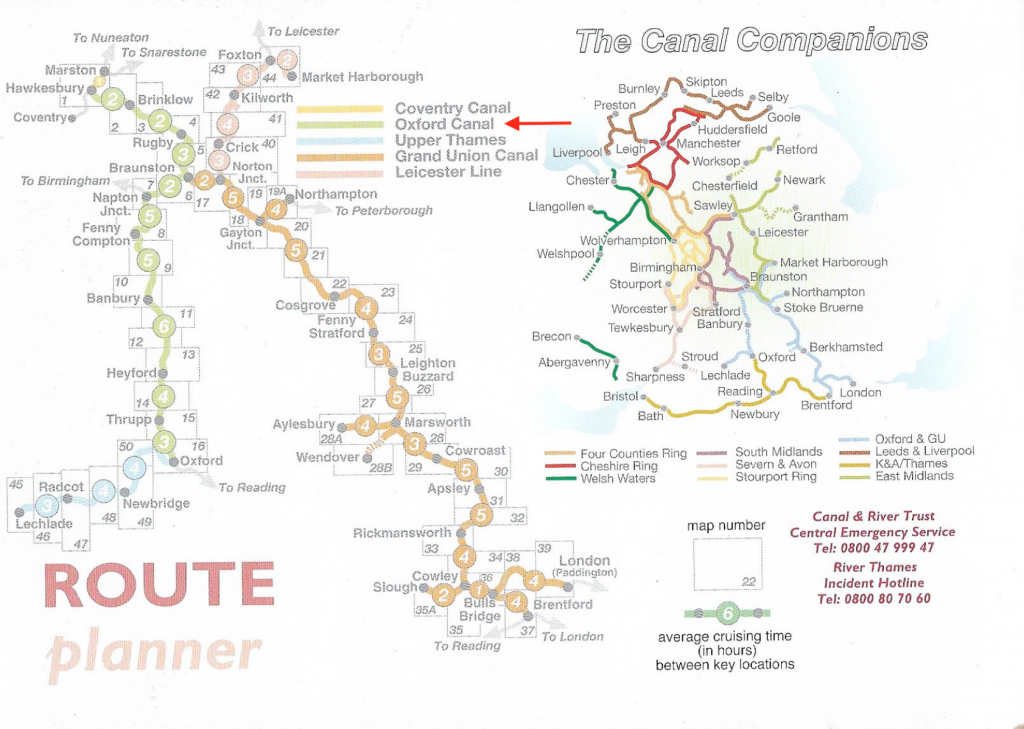 Nevertheless, the canal system is a well-kept secret even to Britons, and few travelers have ever navigated these waterways.
Nevertheless, the canal system is a well-kept secret even to Britons, and few travelers have ever navigated these waterways.
The most import points on the map, of course, are the pub icons with names like The Rock of Gibraltar, The Plough, and The Boat Inn. They are the constellations we use to find the best places to tie up and spend the night.
After leaving Heyford, our first stop is The Rock, and an evening filled with fish ‘n chips and beer, listening to canal buffs spinning the lore, and explaining the complex rules of etiquette for boating down the canal.
Subscribe to our monthly small ship cruise email
Subscribe to QuirkyCruise.com for monthly curated newsletters highlighting our top small cruise ship reviews, round-ups & offers!
Slow & Steady
We are gliding effortlessly at four knots—about the same speed that it takes to walk the towpaths that run alongside of the canal.
Built in the 18th and 19th centuries, the canals were used as the most efficient way to transport just about everything from coal to beer, as Britain moved into the industrial age. In those days horses on the towpaths pulled the heavily laden boats up and down the canals.
Passing under the old stone bridges transports you to the bygone days of a slower time.
Four knots creates no wake, and the still, calm water, together with the sound of bird chatter and the near total absence of industrial noise creates an ambiance known only to the canal.
It puts a smile on Guy’s face.
Lots of Locks
But you inevitably must come to a lock. Did I mention this is an 18th-century mode of transport—with 18th-century technology—a time when we were all probably a little more hardy. But going through a lock is the only way to get down the canal.
First you pull your boat over to the mooring post, but only after you’ve jumped off a moving vessel, not quite close enough yet to the bank. And here’s a tip; don’t forget to take the line with you before you jump!
You need to approach the lock with determination, windlass in hand. Don’t drop it into the lock!
Use your windlass to crank up the “paddle-gear.”
As you crank up the “paddles,” the heavy steel plates on the gate, watch the water rush into the lock. Only after the lock reaches the same level as the canal do you open the gate and pull your boat into the slender passageway. Release the paddles back down slowly, don’t let them drop. Then close the gate.
It helps to use gloves.
Here, you propel your body with all your might, sometimes backwards, to open the lock gate.
After closing the gate behind, raise the paddles on the front gate and watch your boat drop hastily to the lower level of the water. Then open the front gate, and you are ready to motor out to the lower level of the canal as it descends in elevation with the land. Here’s a different technique to open the front gate.
I love the moss-lined stone walls and the view from inside the lowered lock just as we are about to make our escape through the slim stone arch and get back onto the calm waters of the canal.
Close the gate behind you and marvel at the stone steps and grassy slopes of Pigeon Lock, which are exceptionally beautiful.
It’s a real sense of accomplishment to succeed, and get on the other side of the lock. But don’t worry, you will repeat this process many times on your journey up and down the canal.
Lifting Bridges
Old wooden lifting bridges are easier to tilt up and go under.
But they can offer other challenges. Getting through this tight stone passage is tricky.
They offer another satisfying feeling of success!
Sleeping on a narrowboat in the Oxfordshire countryside is about as restful as it gets. Here we are moored for the night. It’s quiet and comfortable, and you wake up to birdsongs, though they do like to start the day at an early hour. Our boat comes fully equipped with bathroom, shower and running water, but the tank holds only so many gallons.
We fill the water tank using the boat maintenance stations along the way. This one is in the classic little English village of Thrupp.
Detective Inspector Morse
We moor at Thrupp to visit the Boat Inn, a favorite hangout of Colin Dexter, the novelist who created the fictional character, Detective Inspector Morse. Dexter roamed up and down the towpaths and frequented the pubs along the canal route. They say, write about what you know, and Dexter seems to have done just that.
Morse likes his pint of beer at any time of day, and in the BBC TV series Morse based on the novels, the detective is frequently seen sitting at one of the pubs along the canal enjoying a pint.
Narrowboats can be seen floating by on the water in episodes of Morse, and the spin-off series Lewis. An entire episode of Morse was devoted to a cold case from the 1800s when a woman was killed traveling on a narrowboat for hire. One Lewis episode had a suspect living on a moored narrowboat. And more than once, a body has been pulled out of the Oxfordshire canal.
As one of my fan-friends joked after we got back from our cruise, canals seem to be “dangerous places where people often end up murdered. You were lucky to have survived your jaunt.”
We left Thrupp in an early morning mist, just after the boat pictured here.
Traffic Jams
The canals are not wide, and at times they can narrow even further. If moored boats crowd both sides of the canal, it can test your nerves, and navigational skills. Just keep the tiller on a steady course and never go over four knots while passing moored boats.
Signs remind those at the helm, or in canal lingo, “elum,” or the “steerer,” to slow down when passing moored boats.
On our way down the canal we admire boats much longer than ours. This one is at least 72 feet, and is the permanent residence of an entire family. It is well looked after, and its glossy new coat of paint shows it’s also well-loved.
Sights Along the Way
Permanent mooring often results in canal-side gardens, this one complete with a chiminea for enjoying a cool spring evening beside your boat, on dry land.
This Tea Room is open for business and features a fancifully decorated narrowboat. It can be reached by boat, or on the other side, by car.
Muddy Waters is a children’s book series that tells the stories of fearless narrowboats as they embark on big adventures down the canals and waterways of Britain. You might call them the equivalent of Thomas the Tank Engine for narrowboats. This boat was once owned by the author herself, Sarah Clatcher.
Visitors
Guy’s sister Kate jumped on board when we tied up just before Oxford. She lives in England, and has always wanted to ride down the canal on a narrowboat but never got around to it.
Kate and her husband Pete parked in the lot at The Plough and walked across the wide expanse of grass, and then a field to get to our mooring site.
In this shot we are actually moored, just having a little fun horsing around on the boat at the tiller.
As we cruise further south, getting closer to Oxford, the canal begins to pass behind houses, where some owners keep boats alongside the banks for easy escapes on to the waterway.
With the rural landscapes of Oxfordshire behind us, the setting gives way to the manicured gardens of the Oxford suburbs that back onto the canal. Fun statuary with an English twist are placed to hail boaters as they glide past.
Oxford!
And here we have finally arrived in Oxford, where we must turn the boat around. Guy and Kate try to back the boat in, making a complete hash of it to the amusement of many onlookers. Shouting from the bank of the canal, I yell repeatedly they are doing it wrong, but they are well into sibling shenanigans.
They head in bow-first only after two failed attempts backwards. They tell me later their only regret was being caught without earplugs, so they might better have ignored my shouting.
On our way back up the canal after finally, successfully reversing course in Oxford, we pass by once again, the beautiful countryside of the upper portion of the Oxforshire canal.
Where just over the next boat.. is a peaceful herd of cows!
Toward the end of our trip, just as we are feeling terribly accomplished about negotiating all the locks, navigating, and crewing the boat with just the two of us, this hardy fellow passes by all on his own. He single-crews his beloved narrowboat up and down the canal systems of Britain.
When we get back on the train at Heyford, we are in Oxford in 20 minutes. The same journey there and back just took us four days to complete. But here’s to our narrowboat canal cruise that seemed to us like a dance.
We dance to keep dancing, for the pleasure of it, not necessarily to get to the other side of the dance floor.
In the end we are most grateful to the Canal and River Trust for doing such a wonderful job keeping the British canals open and in great working order for recreational boating.
The words on this boat reflect the best sentiments of those who travel, not necessarily to arrive at a final destination.
Interested in a Narrowboat Cruise?
Finding & booking a narrowboat:
We booked through Oxfordshire Narrowboats online. I also called them to ask questions and they were very helpful.
Price range:
We paid 490 pound sterling for a 47-foot boat for four days and four nights on the narrowboat. Prices vary by excursion, length of the boat and season.
Boat capacity:
Our boat had one double-bed berth, and two big fold-out chairs, so it could sleep four.
The longest narrow boat can sleep up to 12 people comfortably.
Operating the boat, tiller, the locks etc:
Oxfordshire Narrowboats provide a handy little well-organized booklet with terms and instructions. In addition, a staff member rides with you for about 15 minutes to the first lock, and shows you how to go through it. After you make your booking, they send you an information booklet and ask that you to read it before you arrive to take your boat out.
Narrowboating season:
We loved our March booking because it was not that cold, and we seemed to have the canal “all to ourselves.” The most popular time are the summer months, but you may have to wait behind several boats to get through the locks at the height of summer on a weekend.
There are permanently moored boats over the winter, and many people boat all year round.
Mealtime:
There is a little fridge and a well-functioning stove on board. We ate at the pubs at night, but the first night we heated up some Indian take-out we brought with us. Dishes and flatware are provided.
Sleeping compartments:
It was perfectly comfortable. We are both tall, and the berth was long enough. Click HERE to see what the interior space looks like.
Robin Andersen & Guy Robinson are an adventurous couple, who, when they're not professing at Fordham University, are walking through woods, riding trains or seeking out farmer’s markets for edibles and artisanal treats of all descriptions. They live just a little north of New York City, where Robin writes her books and Guy is close to his field biology research sites.
Don’t miss a post about small-ship cruising, subscribe to QuirkyCruise.com for monthly updates & special offers!
© This article is protected by copyright, no part may be reproduced by any process without written permission from the author. All Rights Reserved. QuirkyCruise.com.

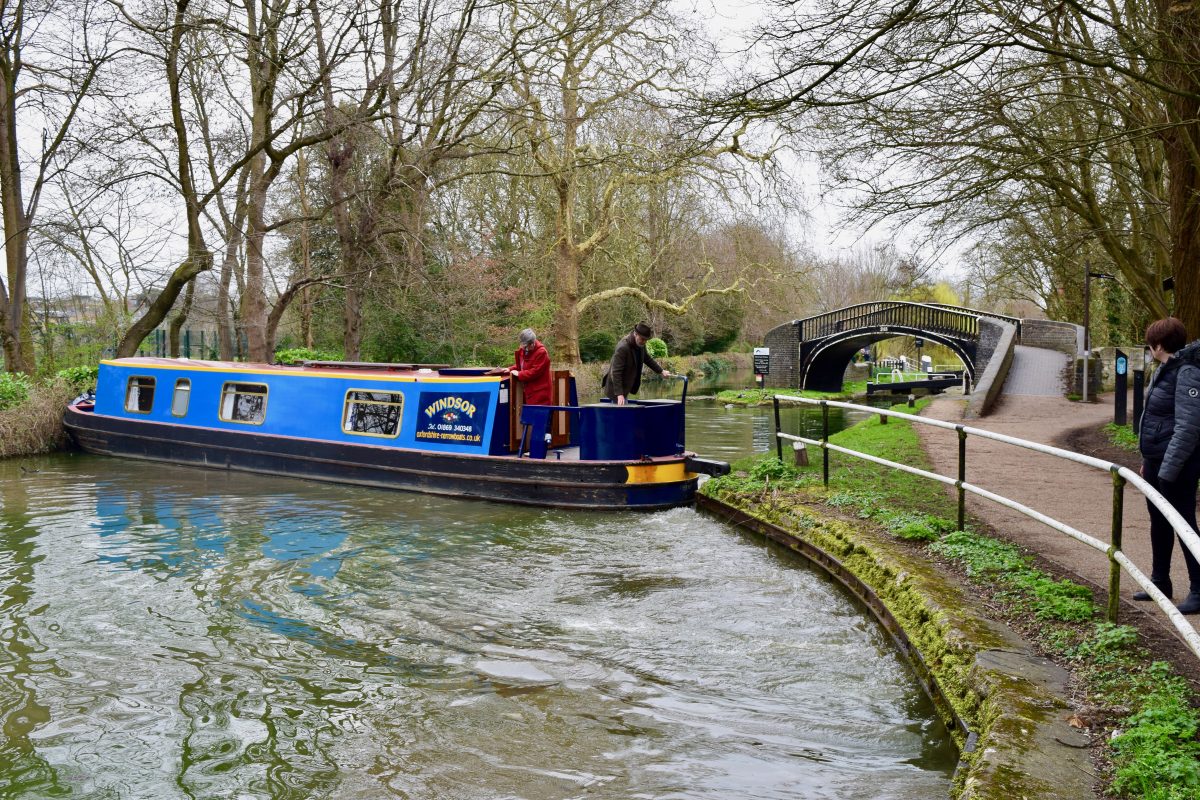
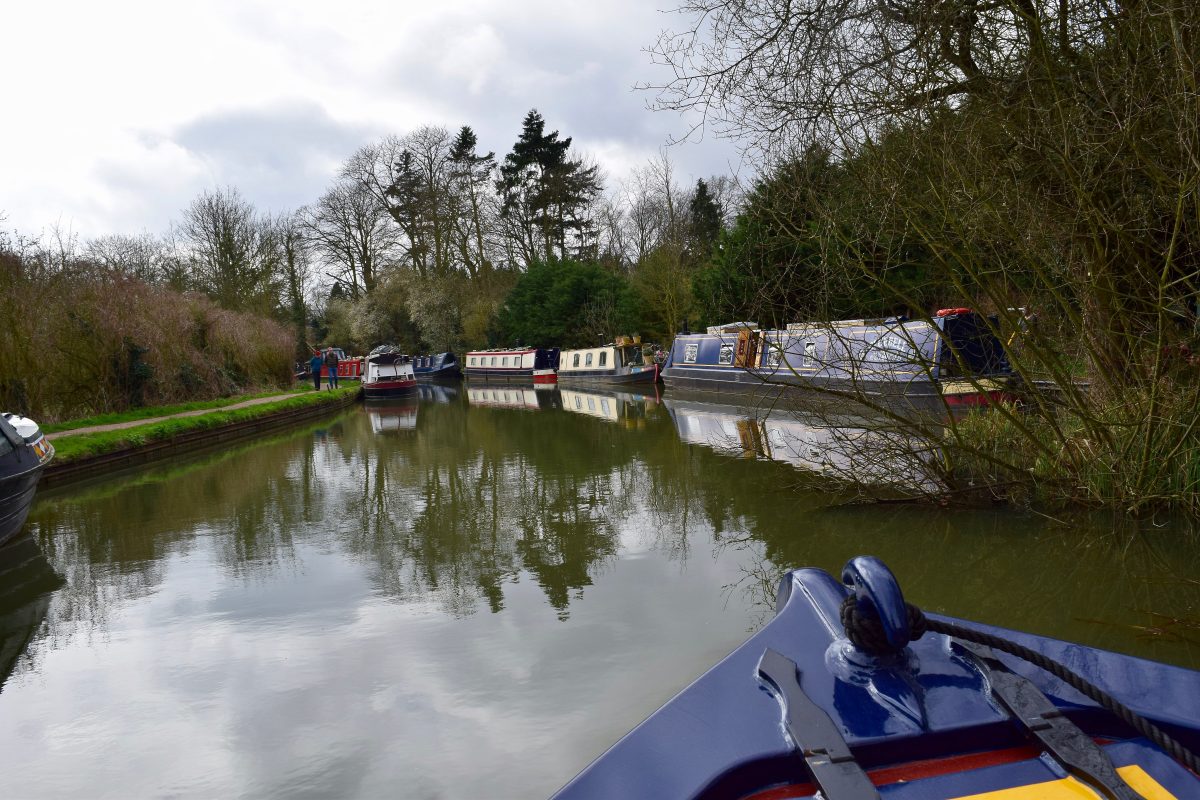
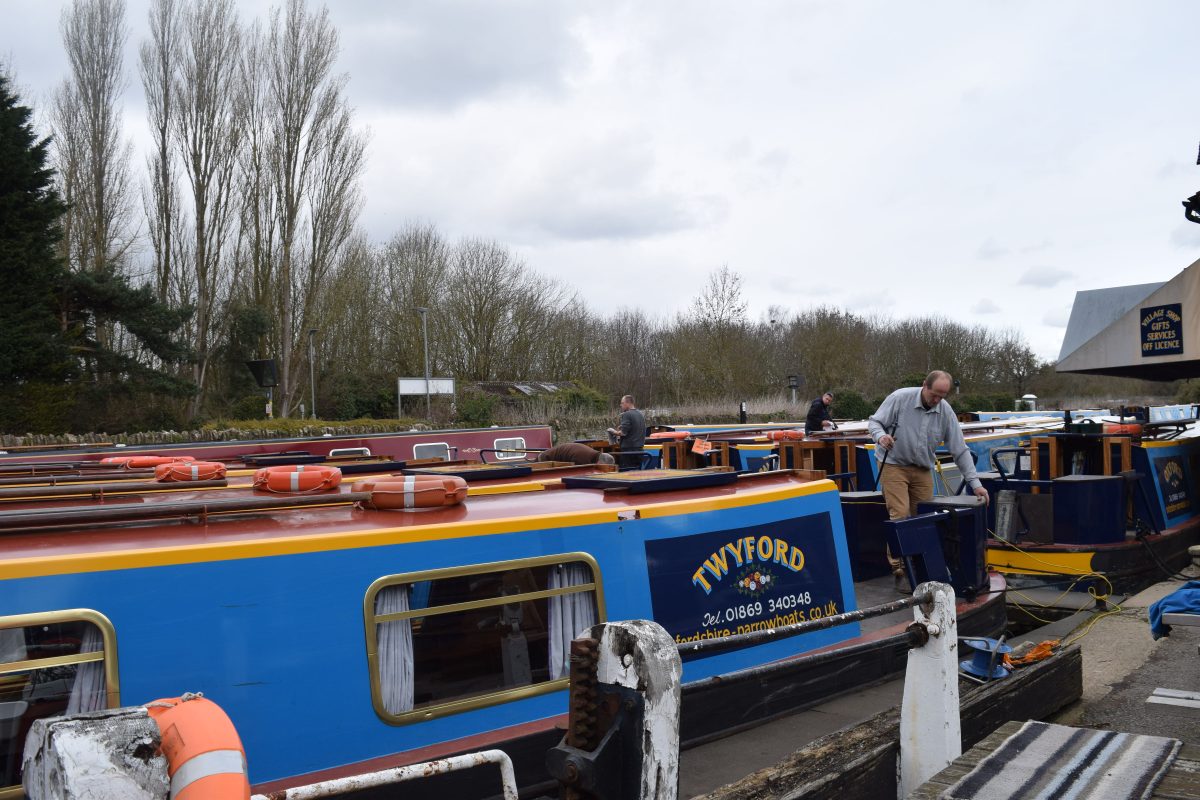
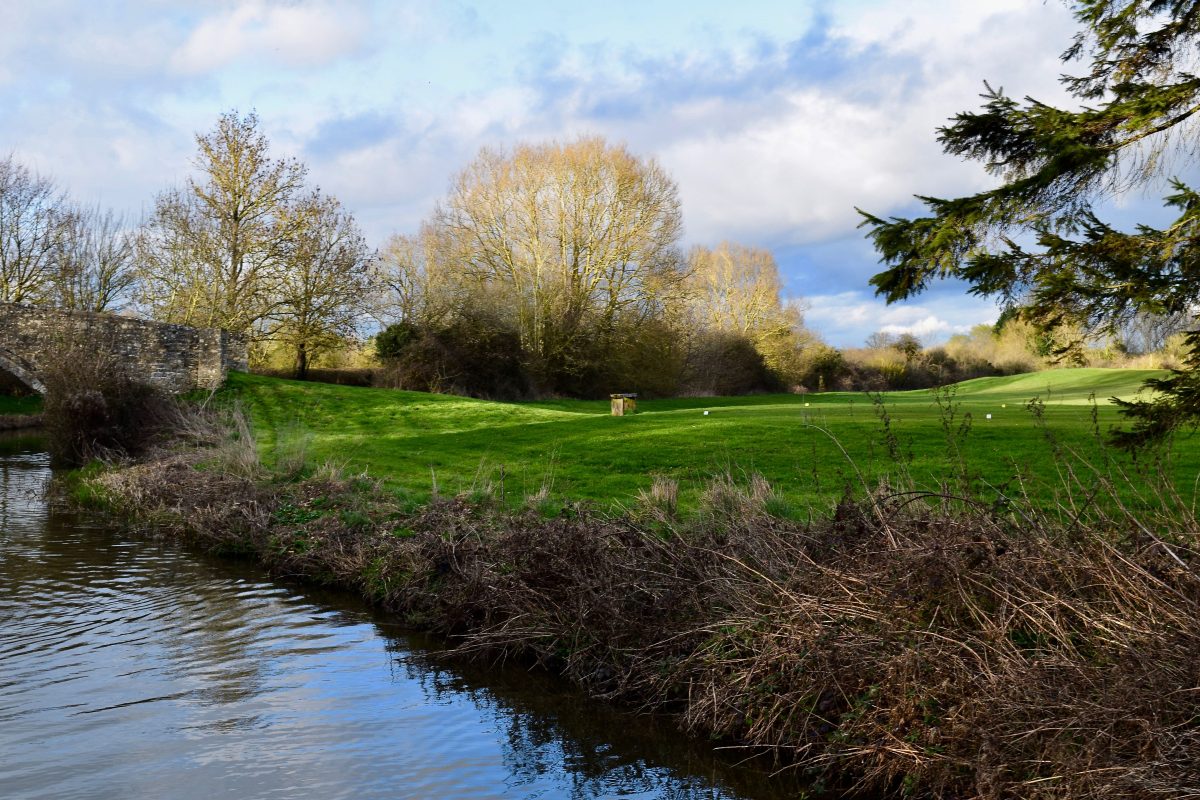
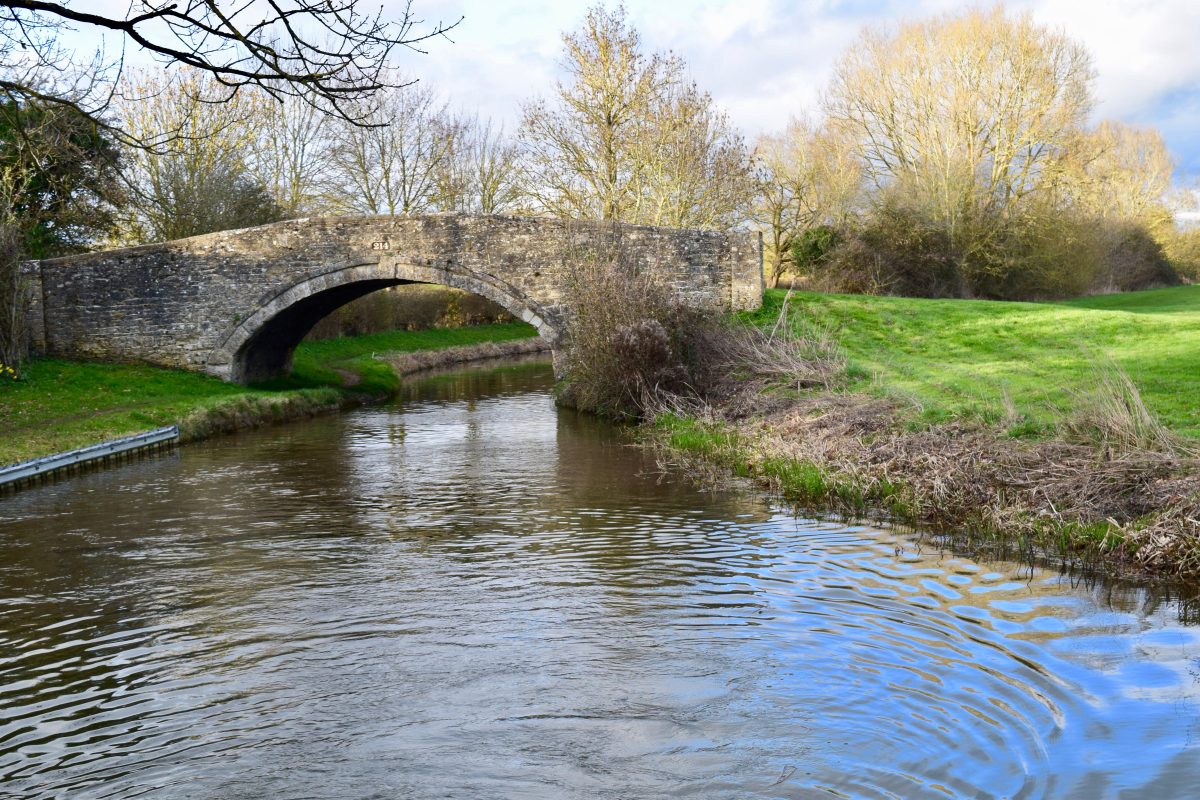
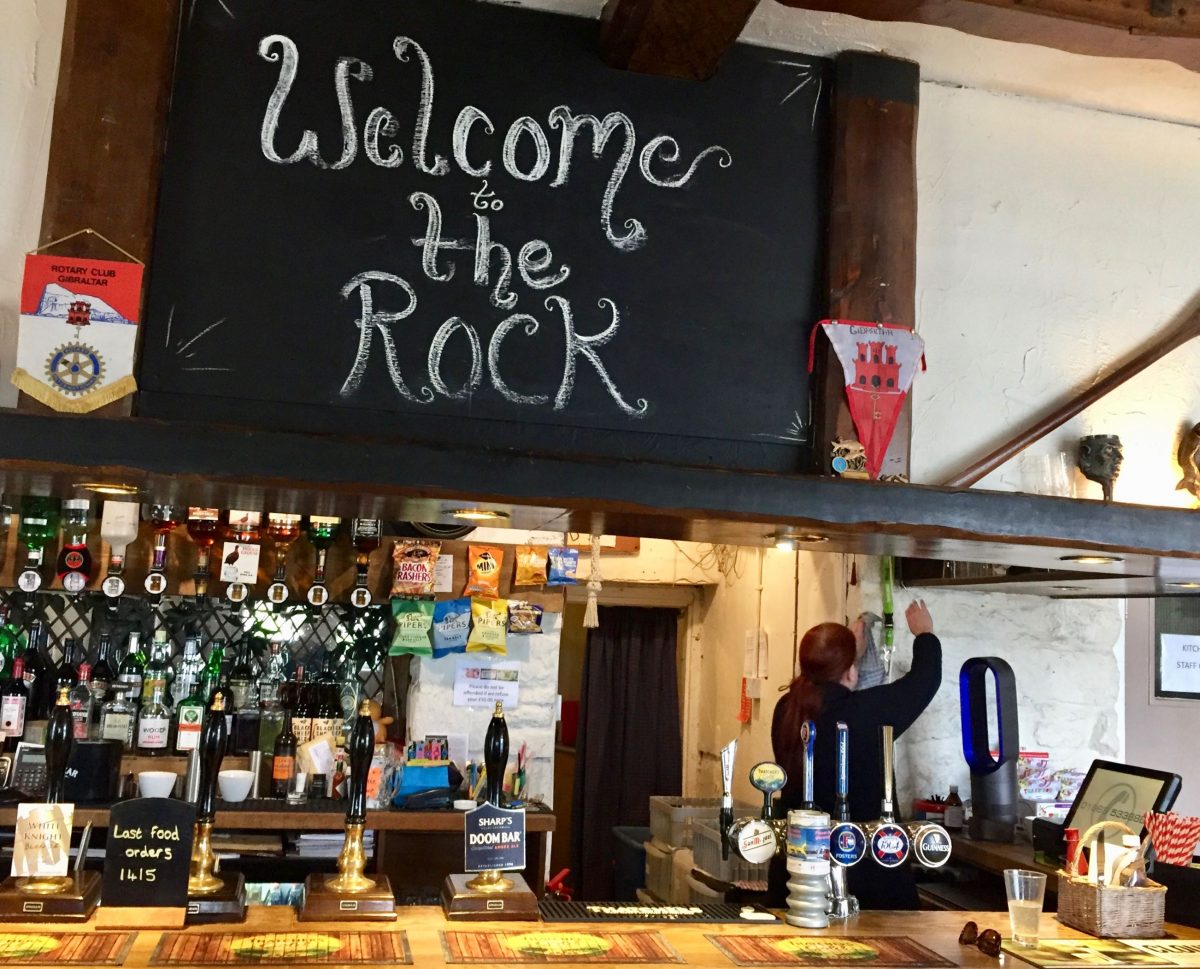
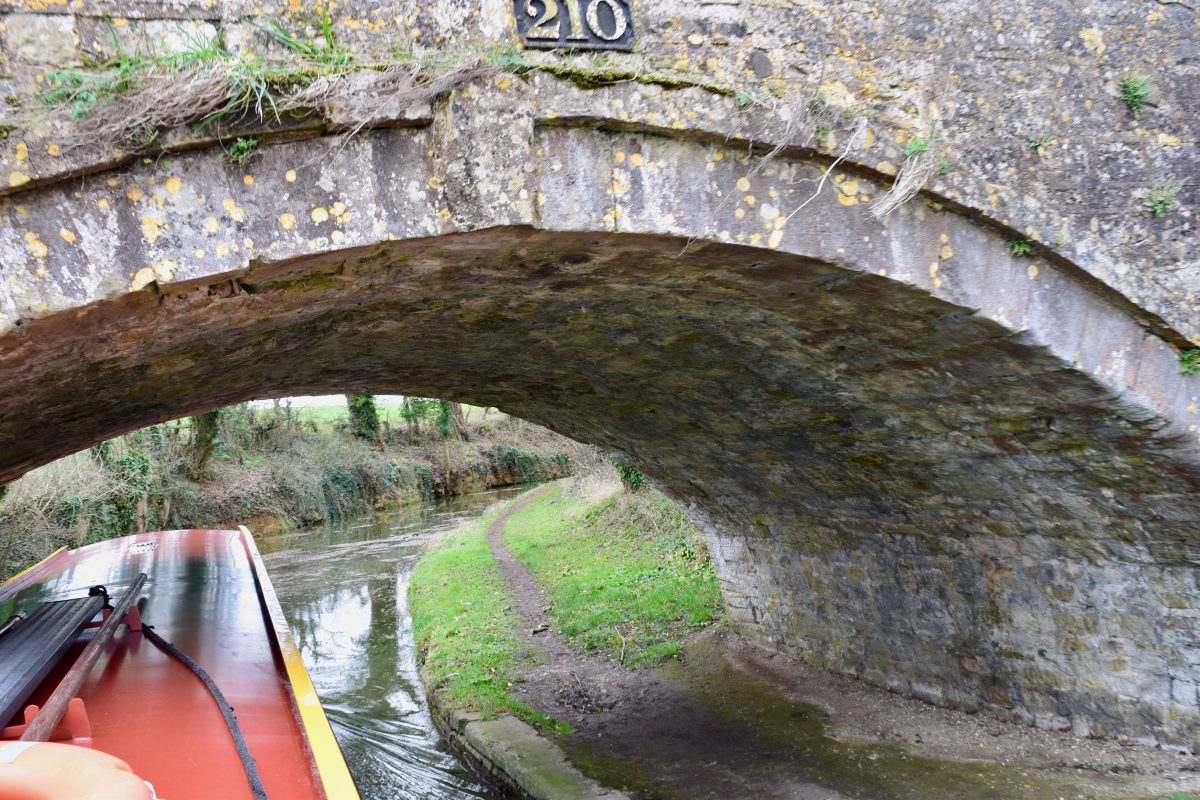
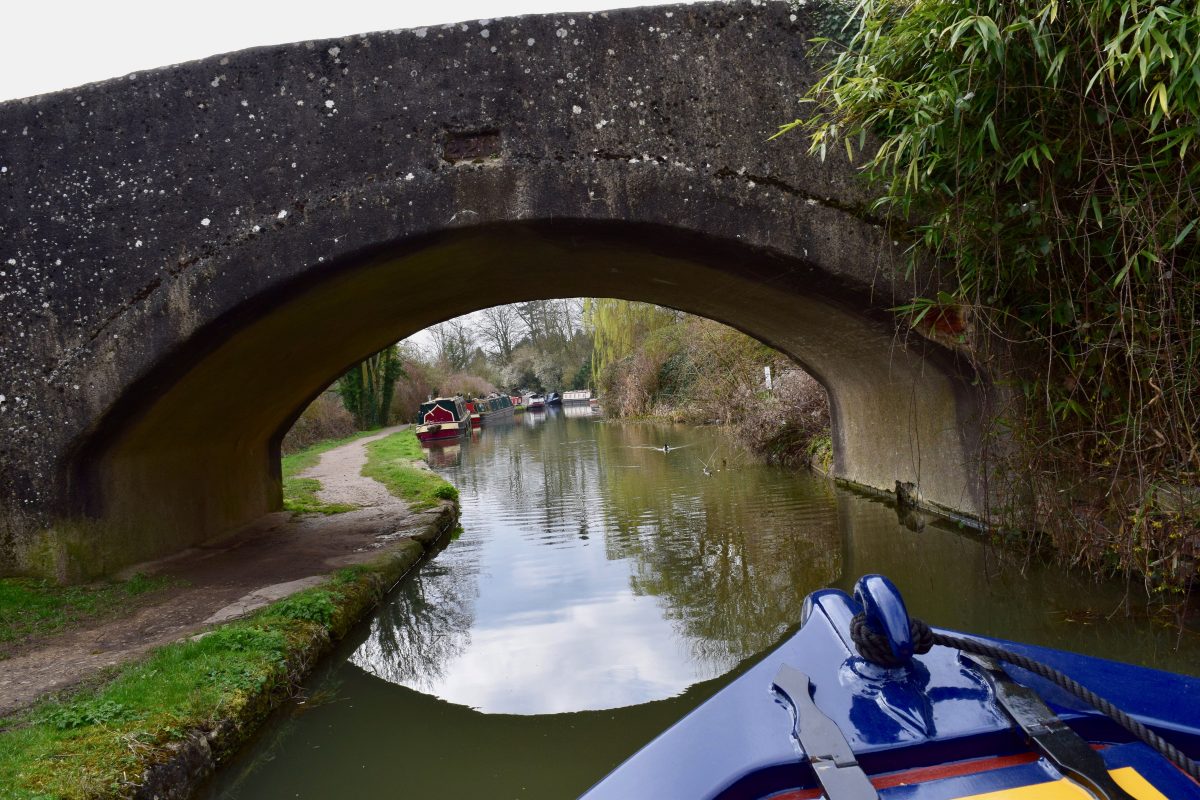
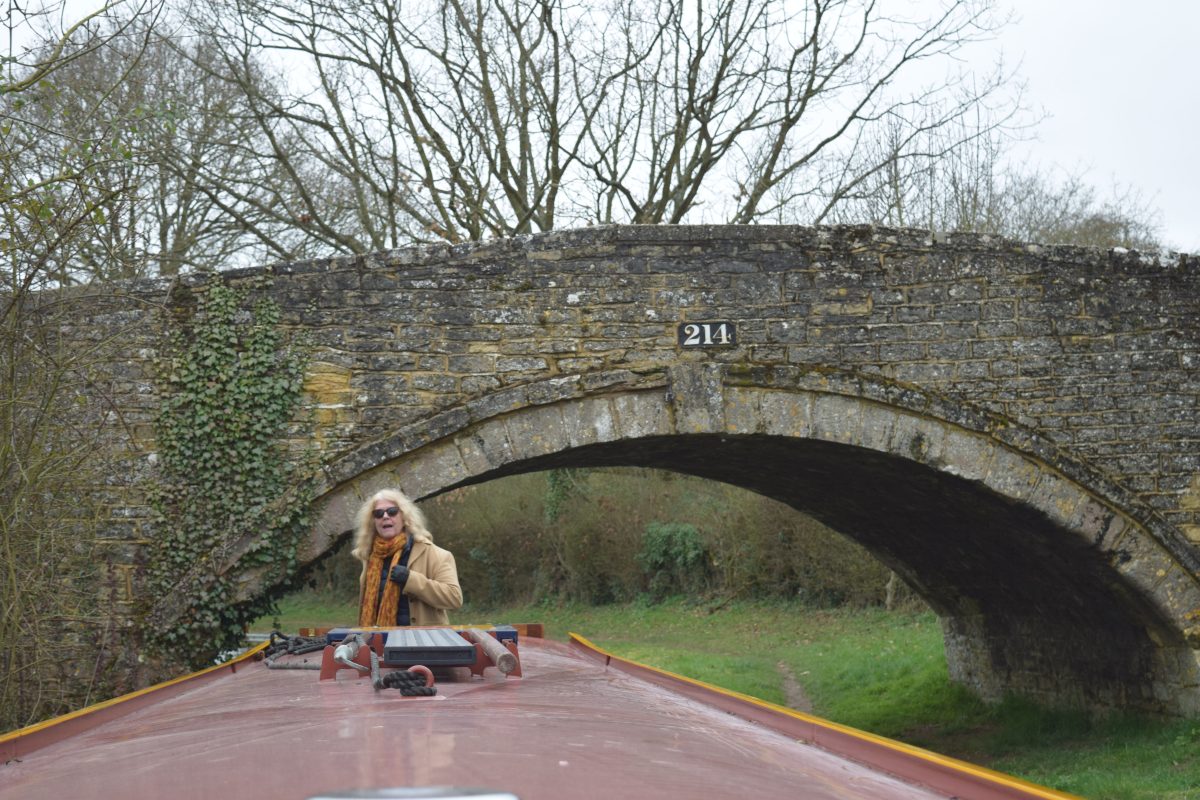
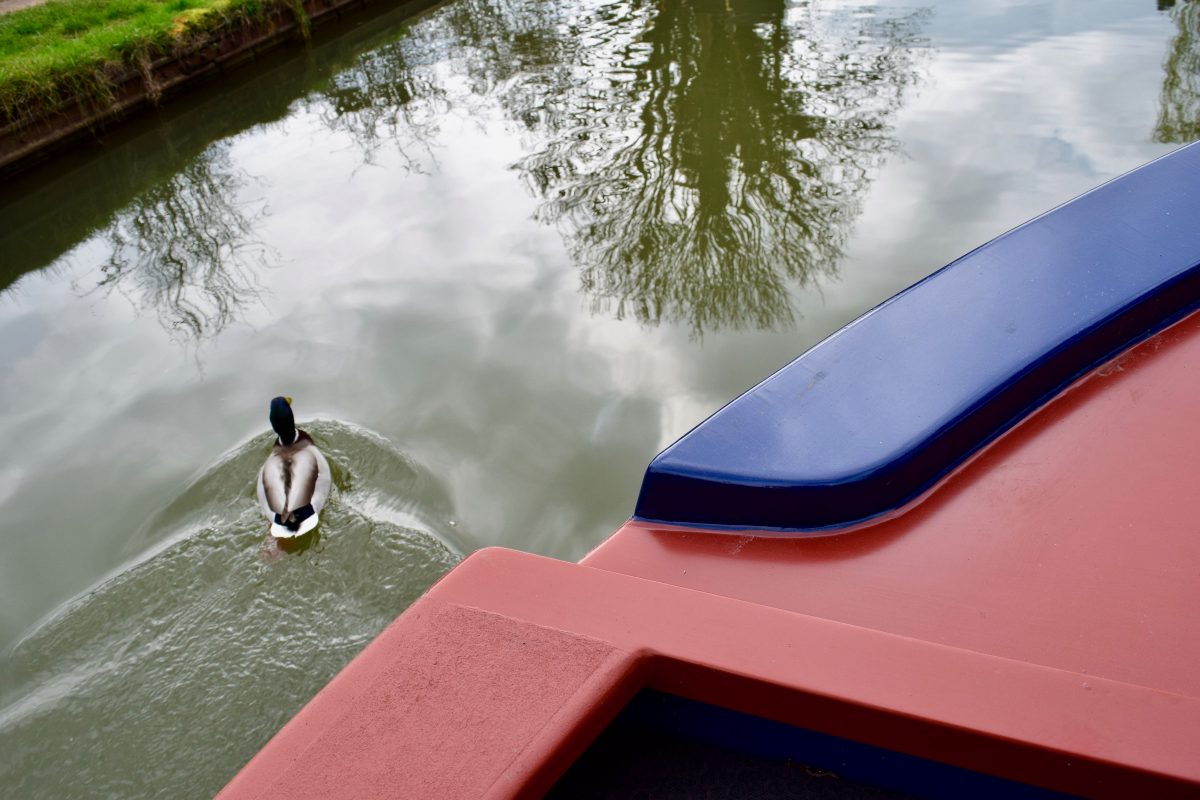
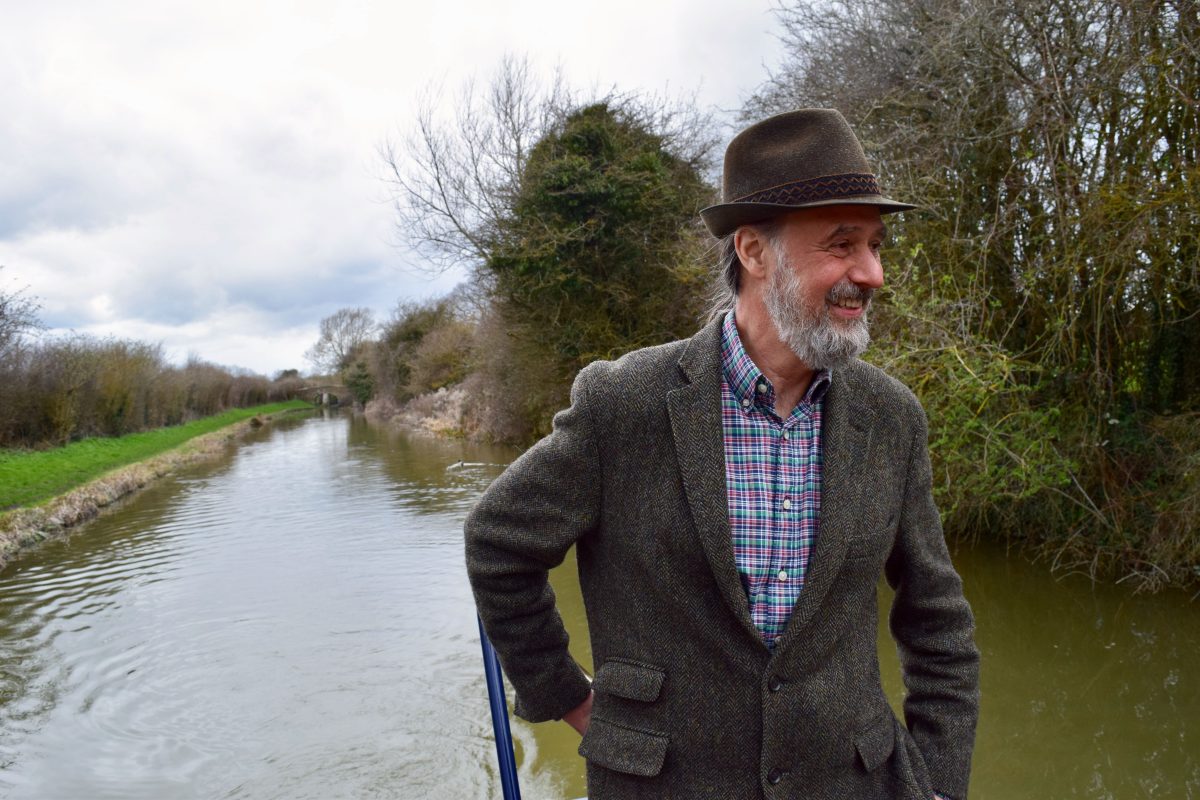
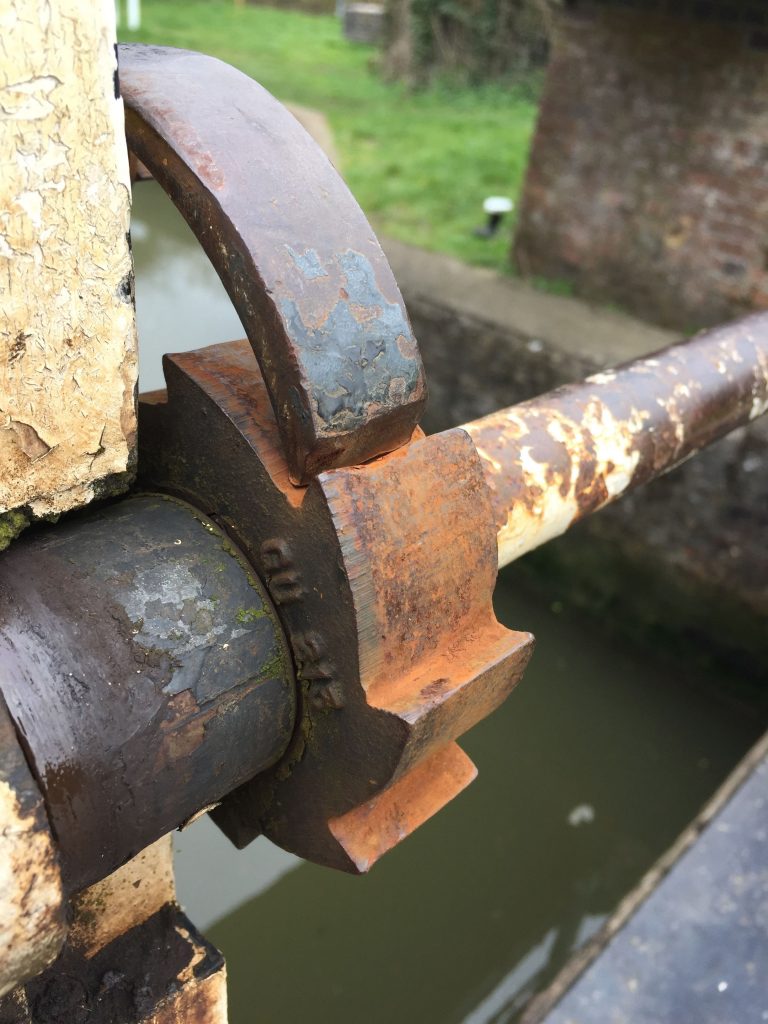
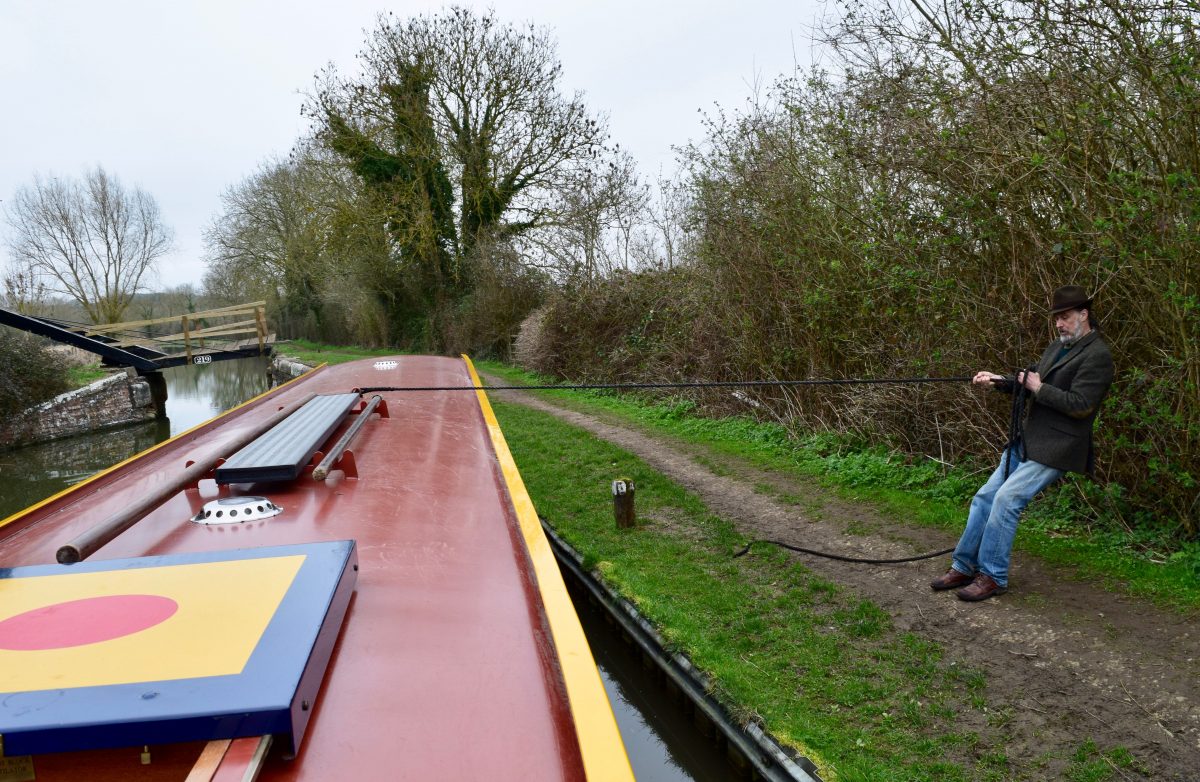
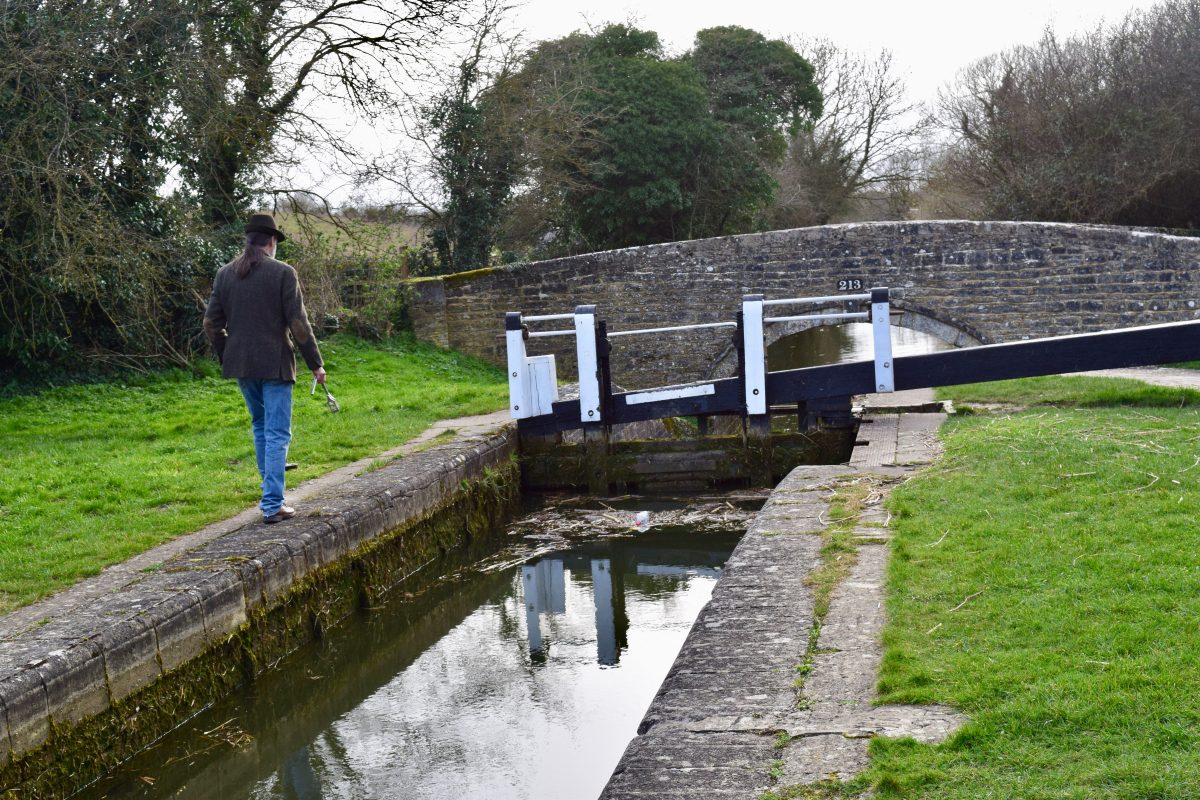
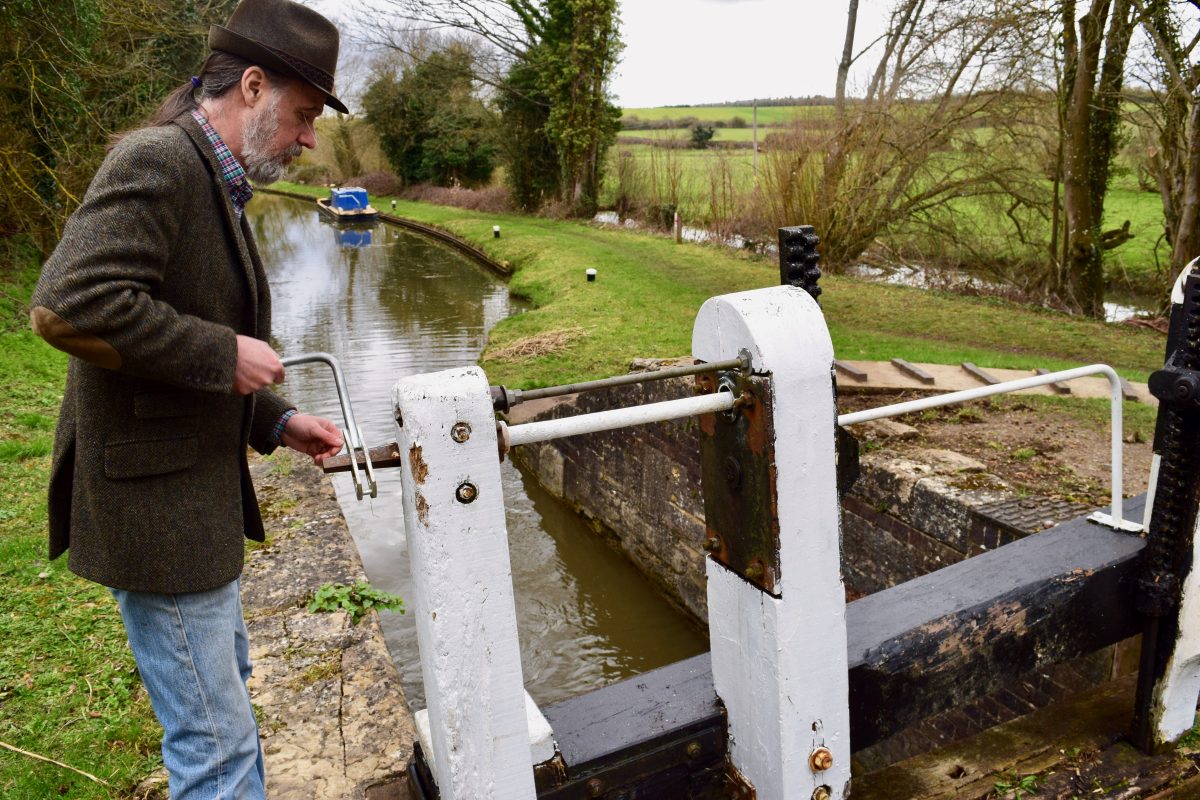
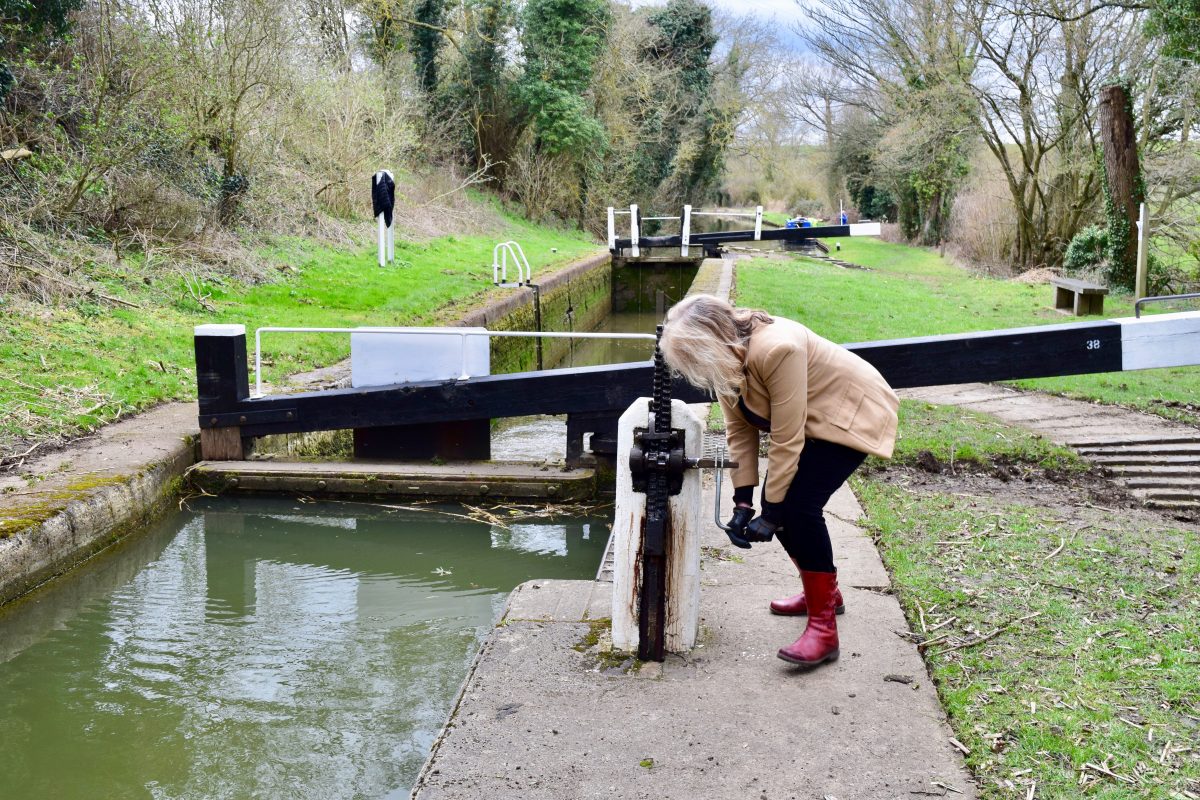
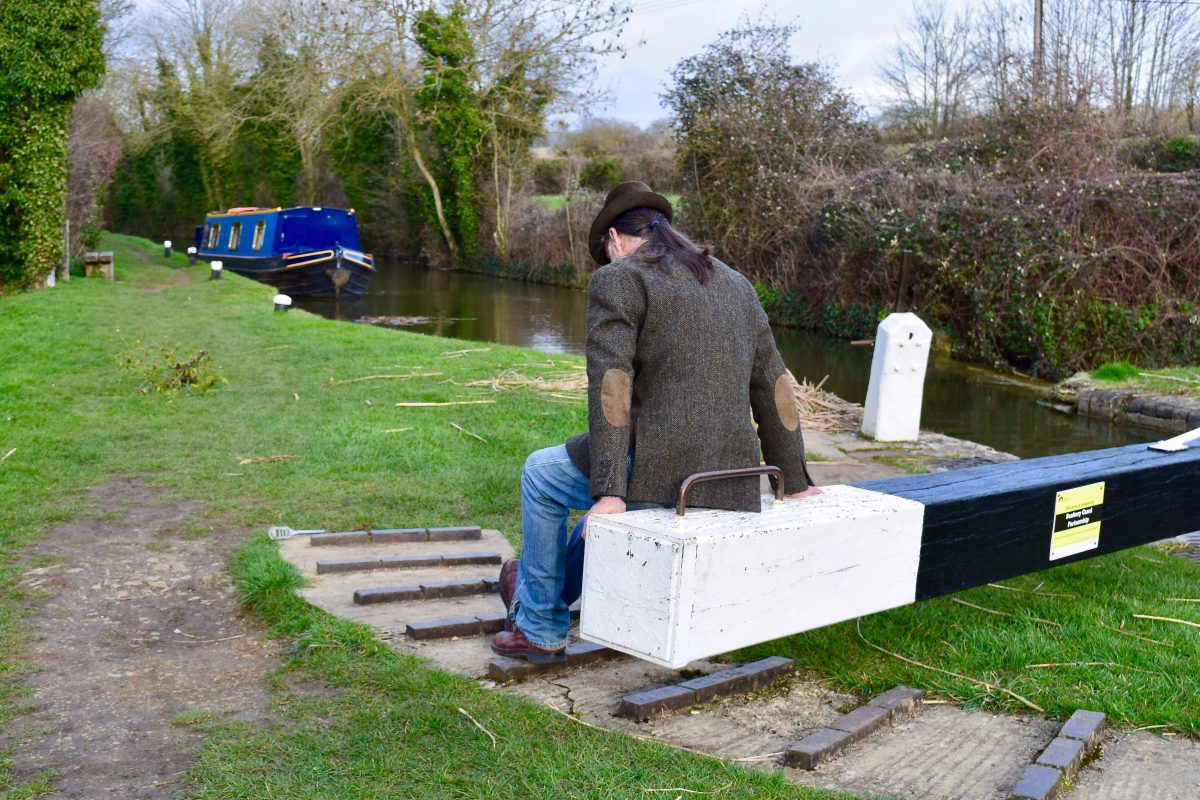
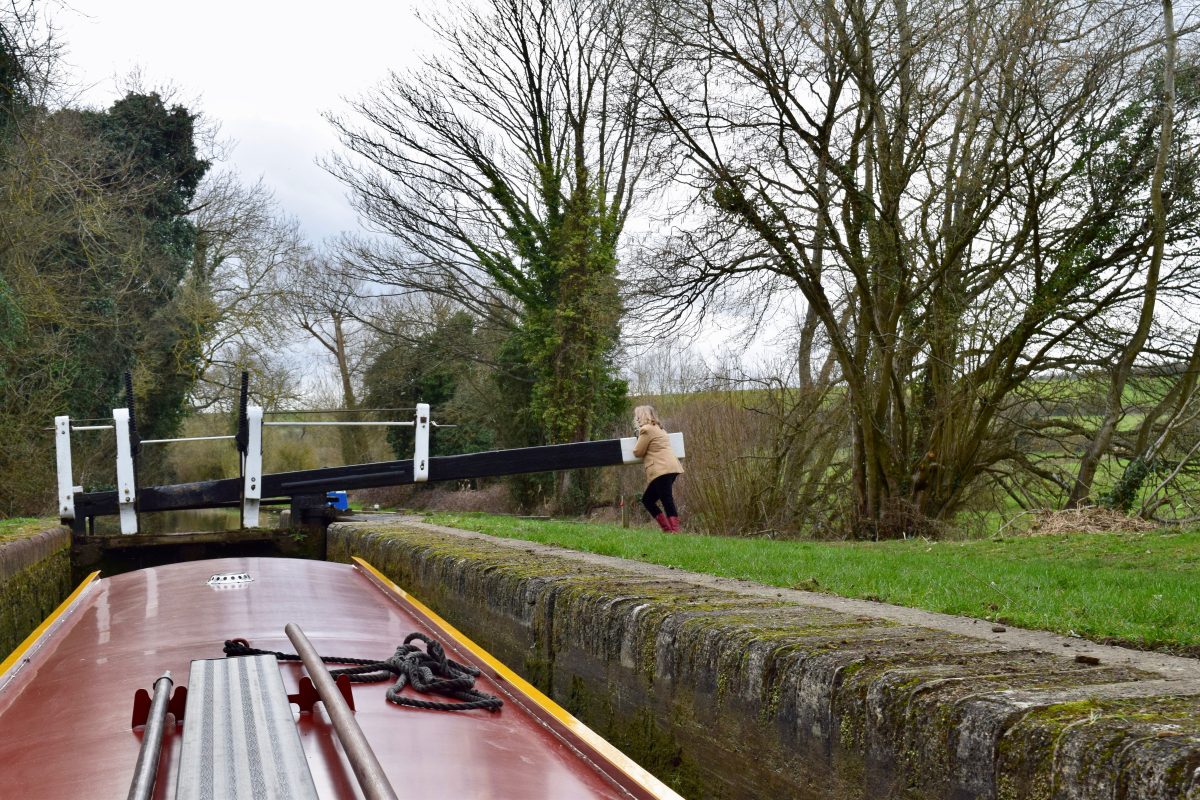
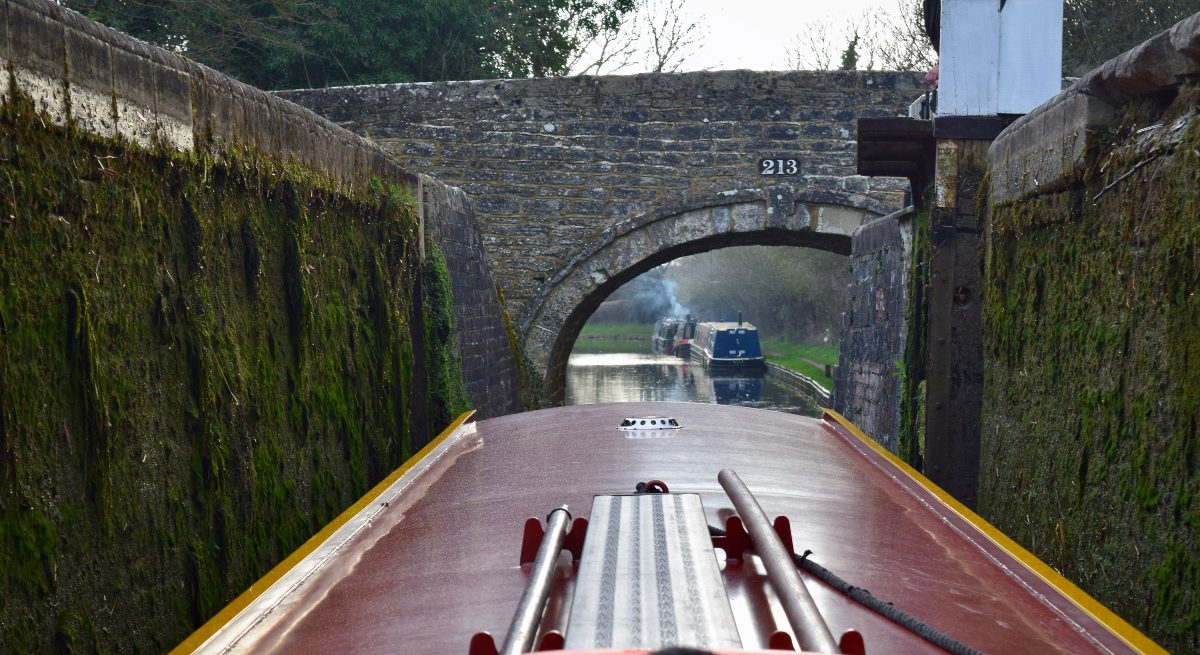
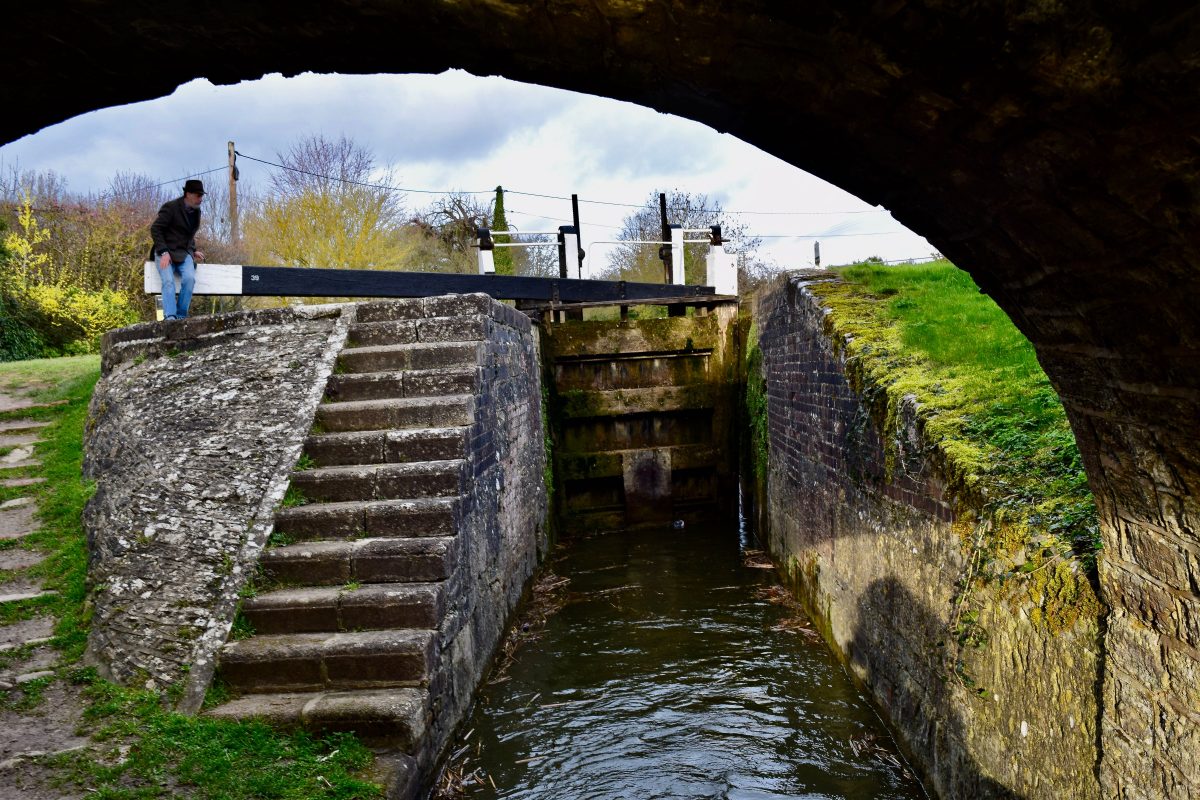
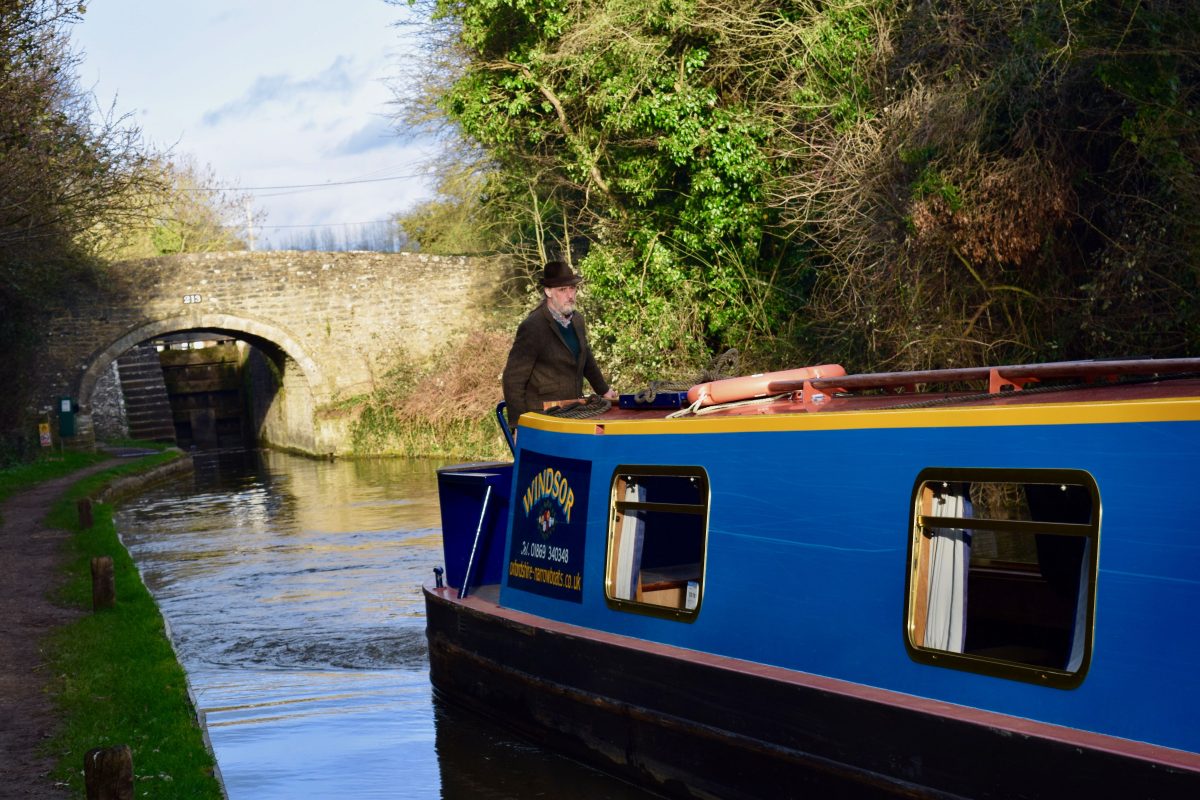
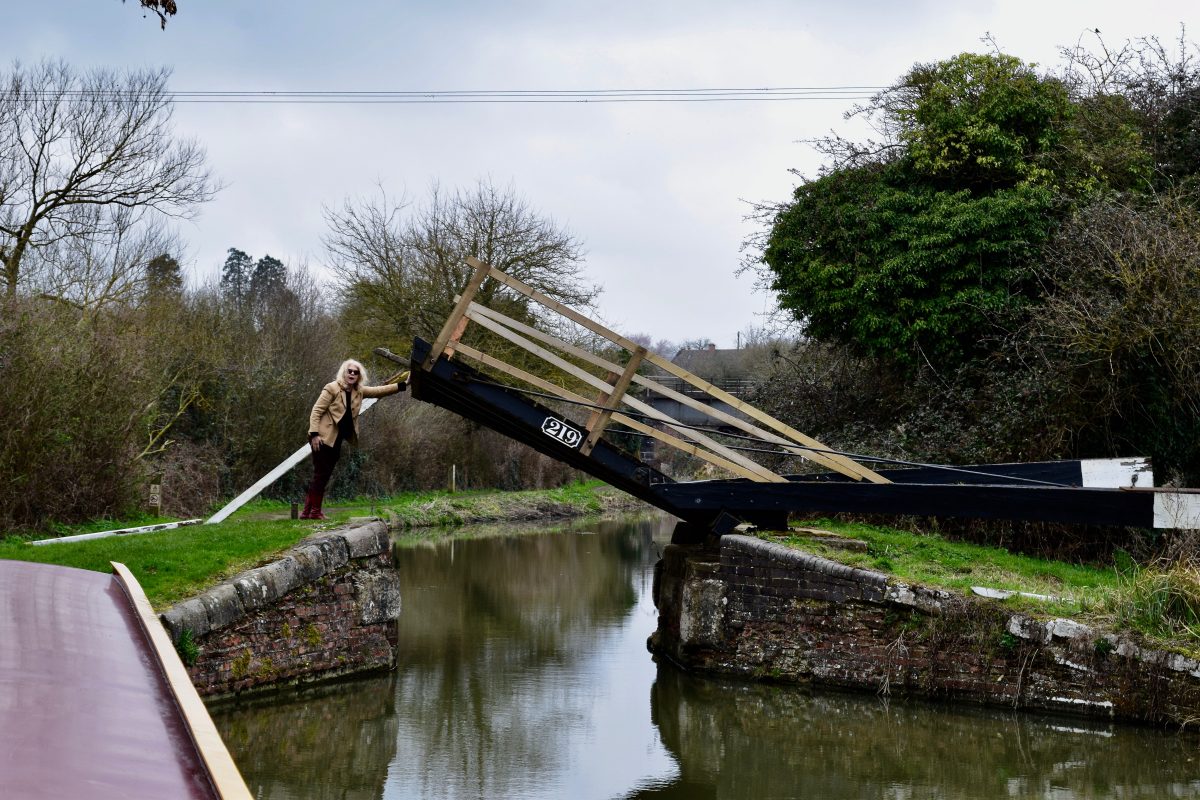
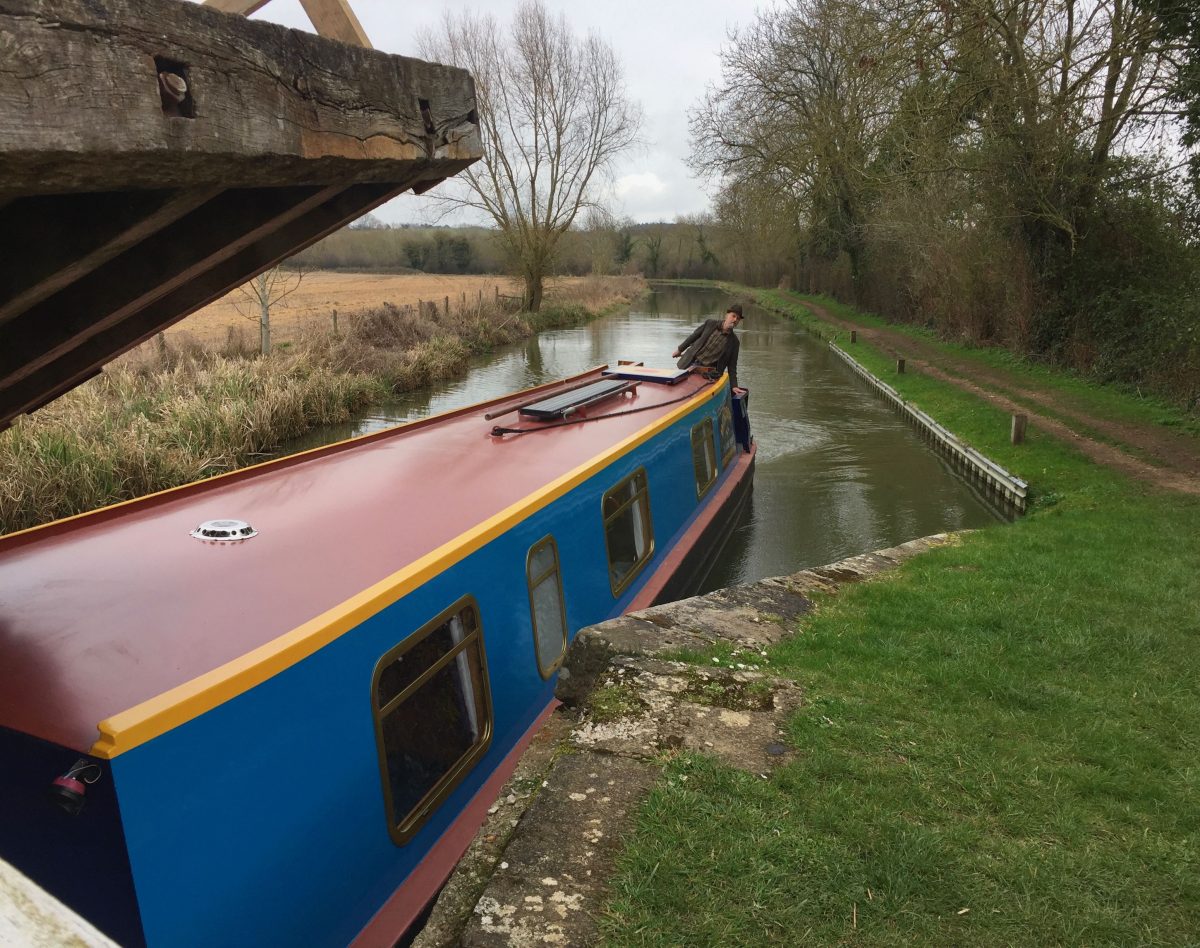
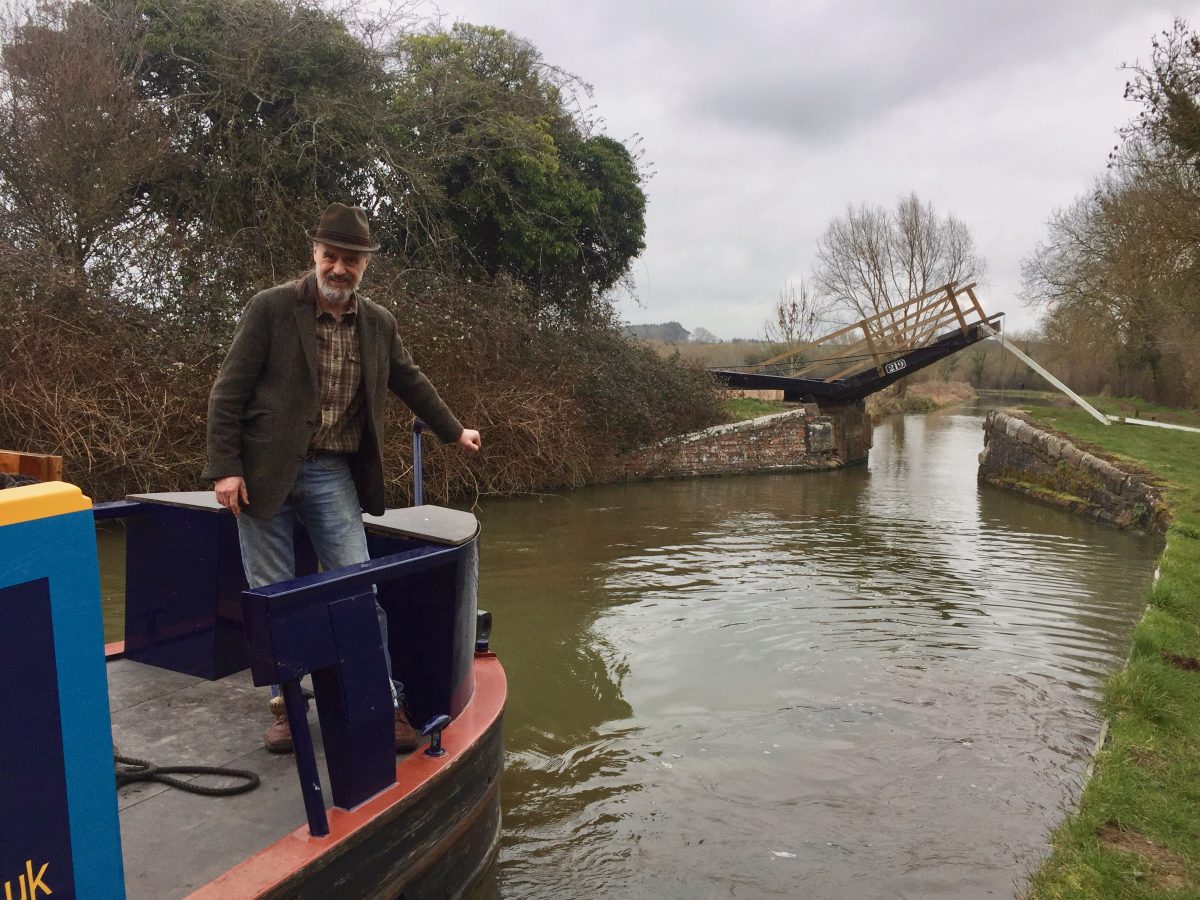
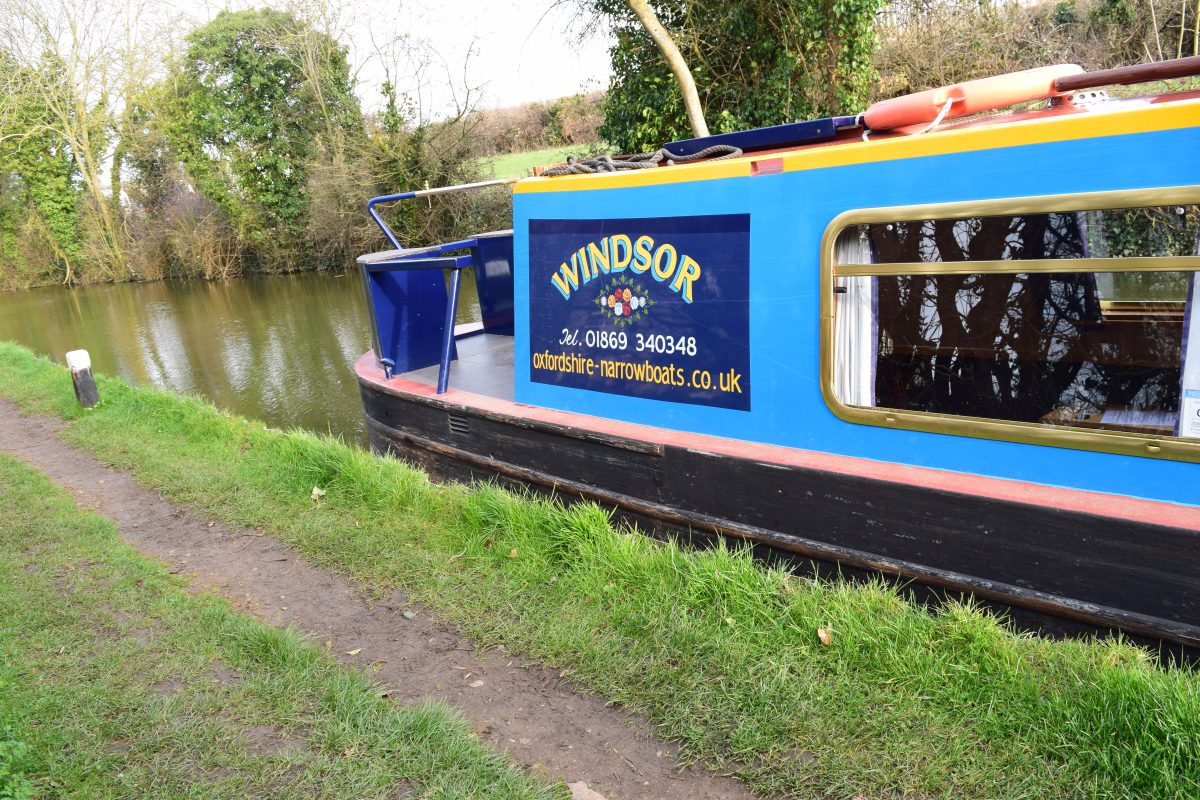
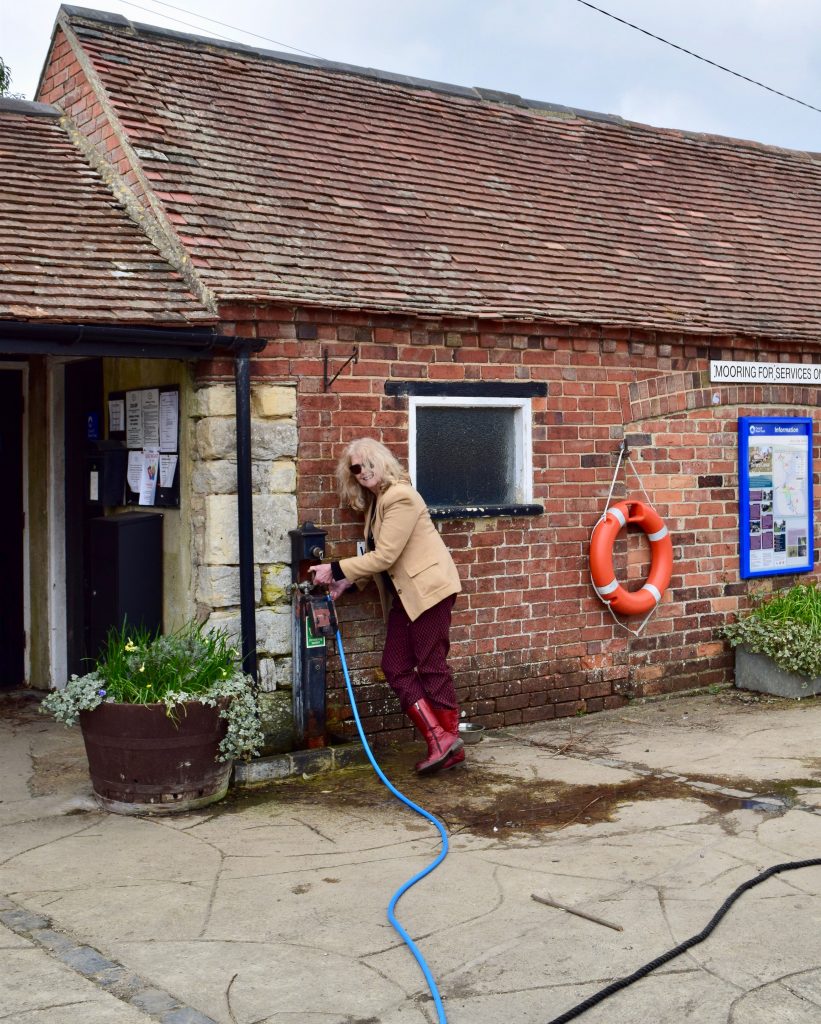
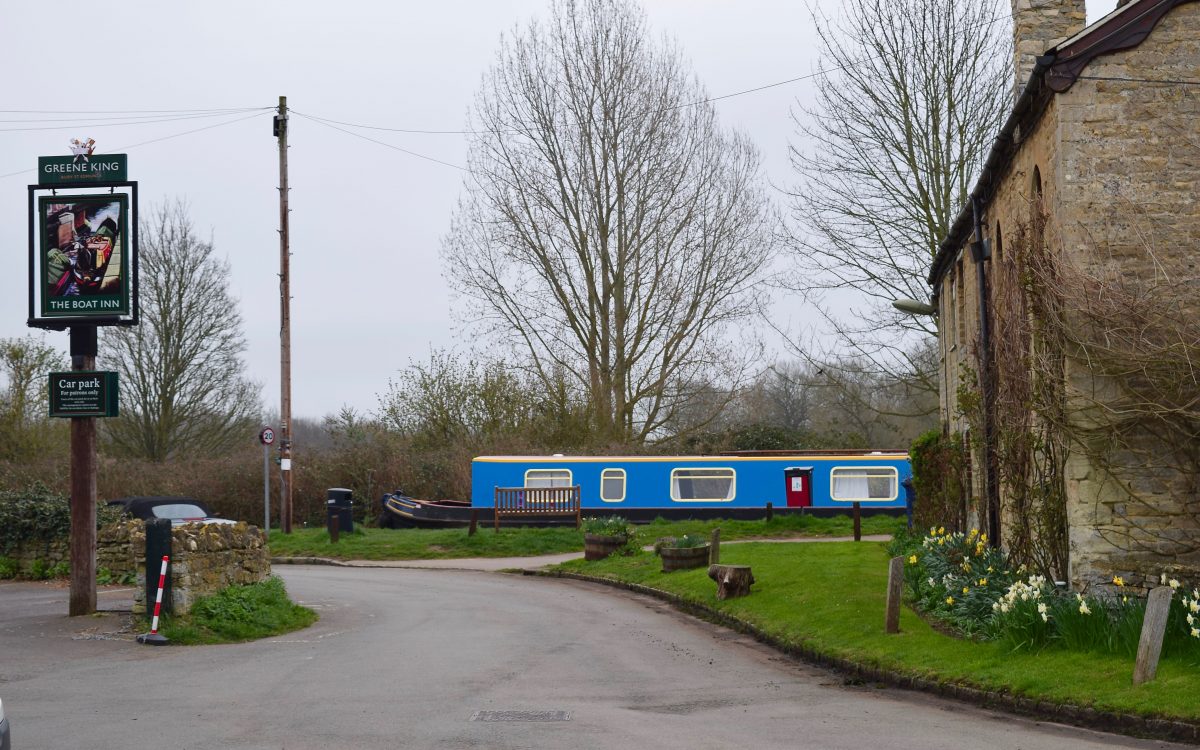
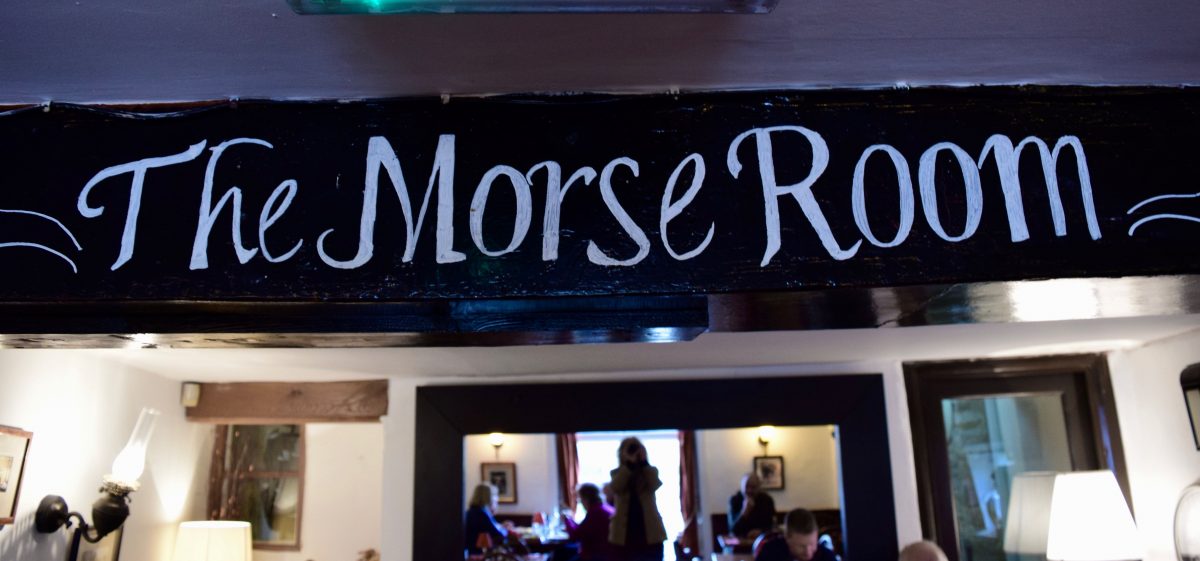
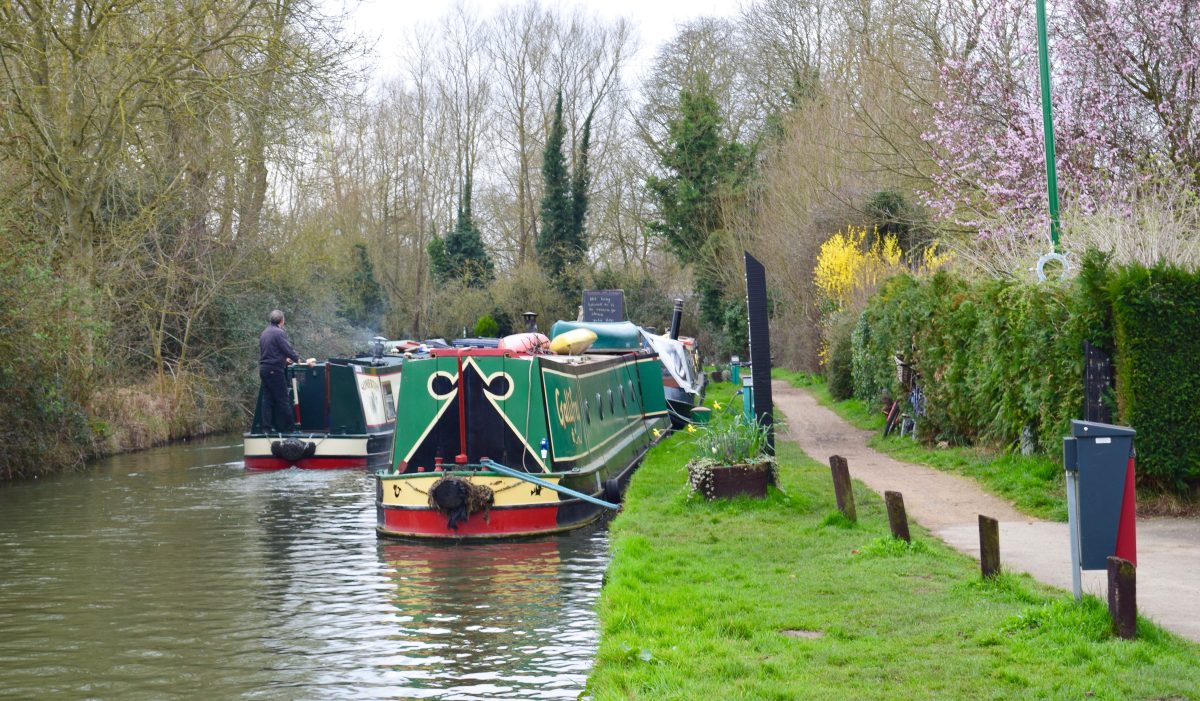
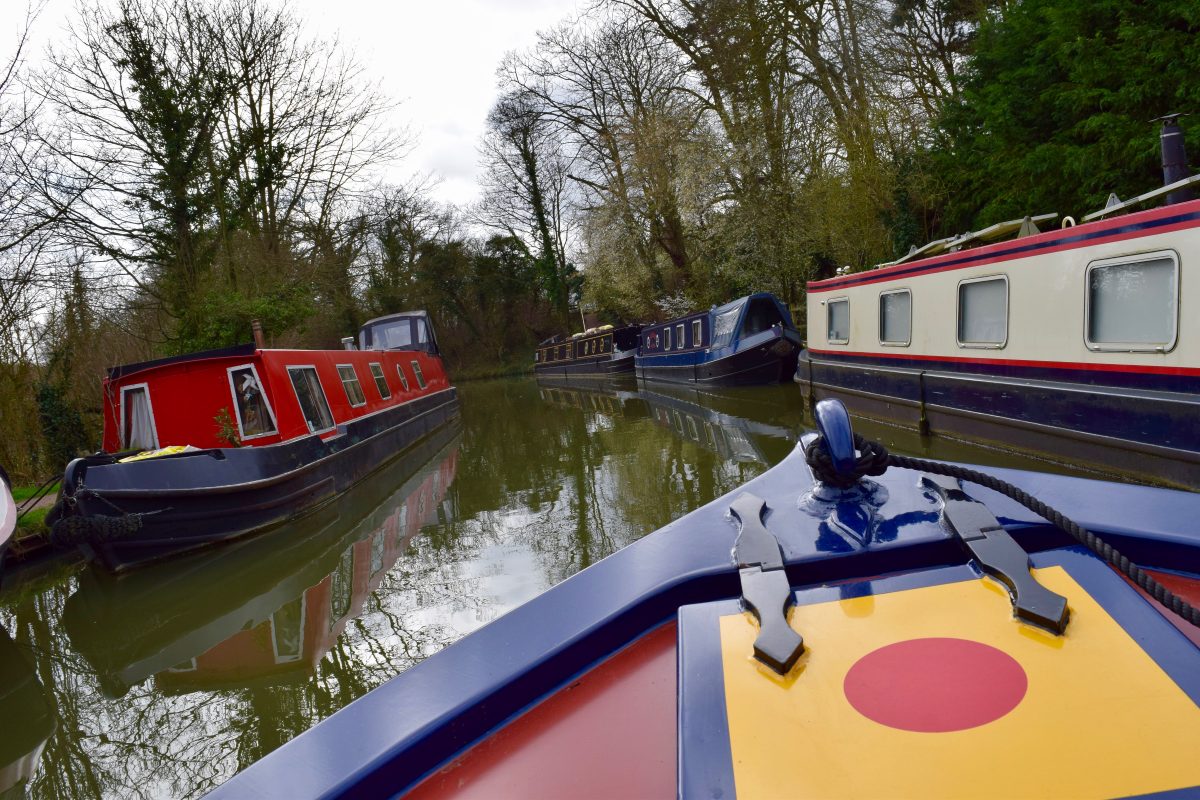
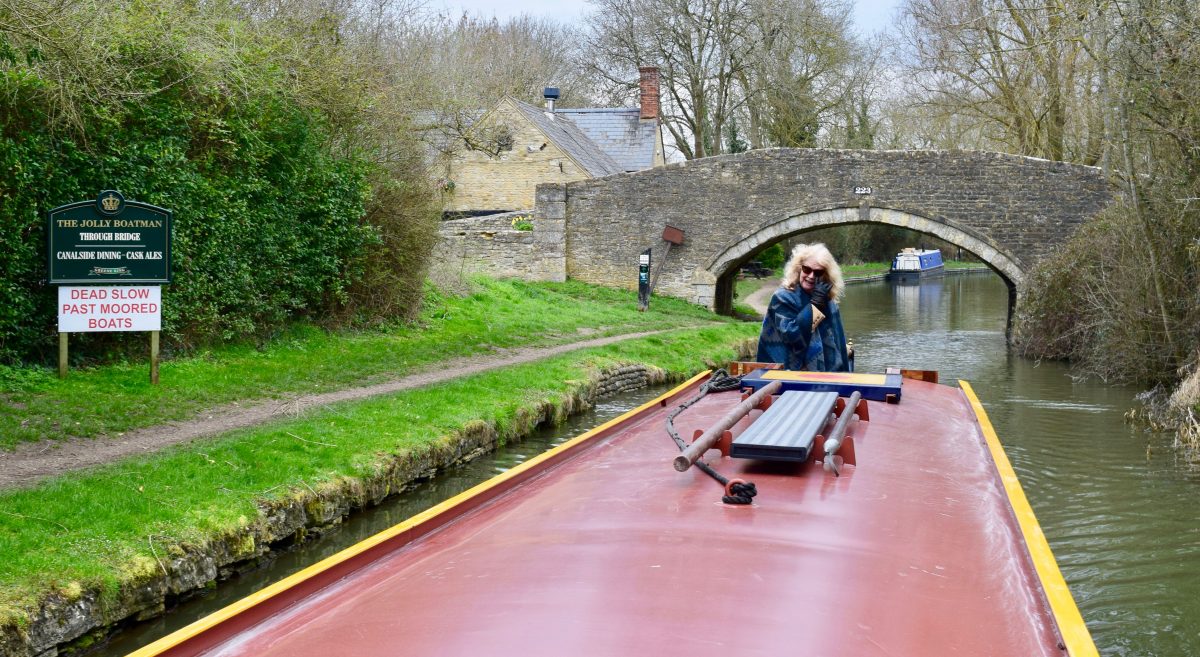
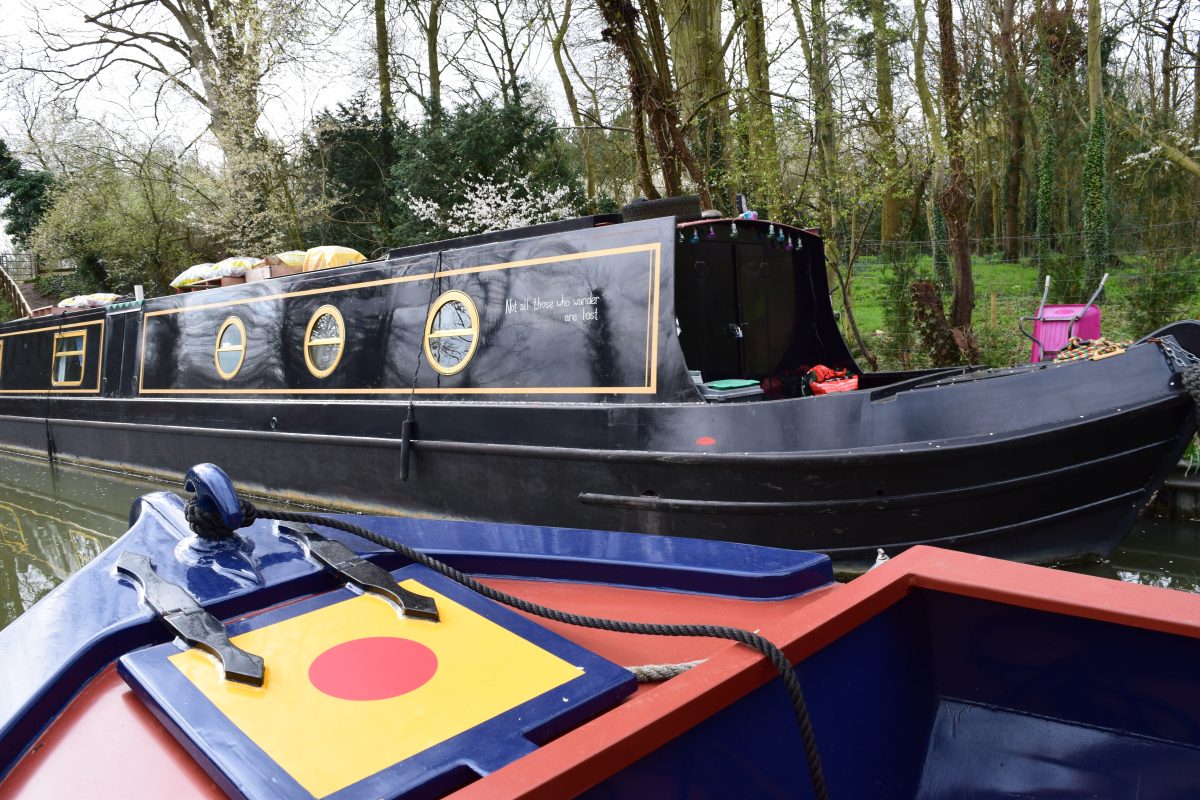
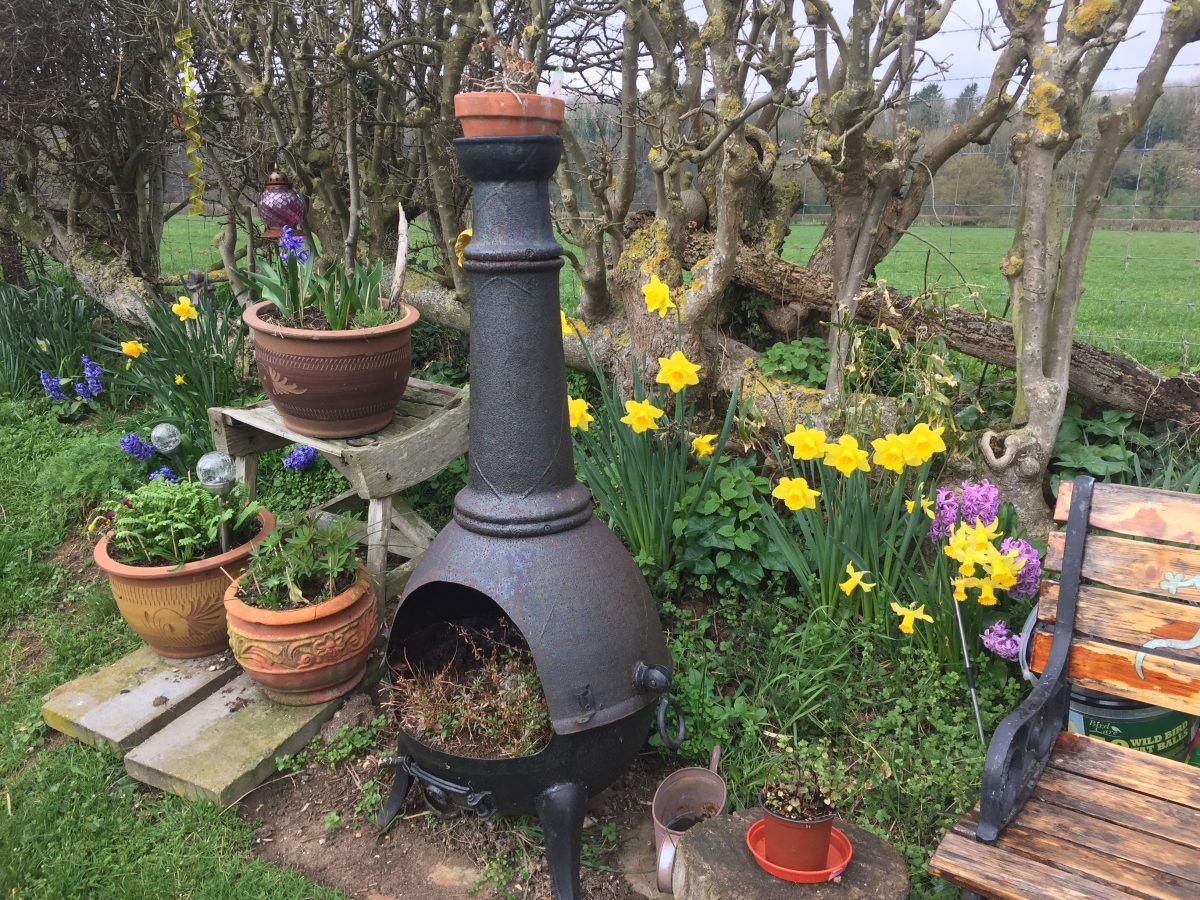
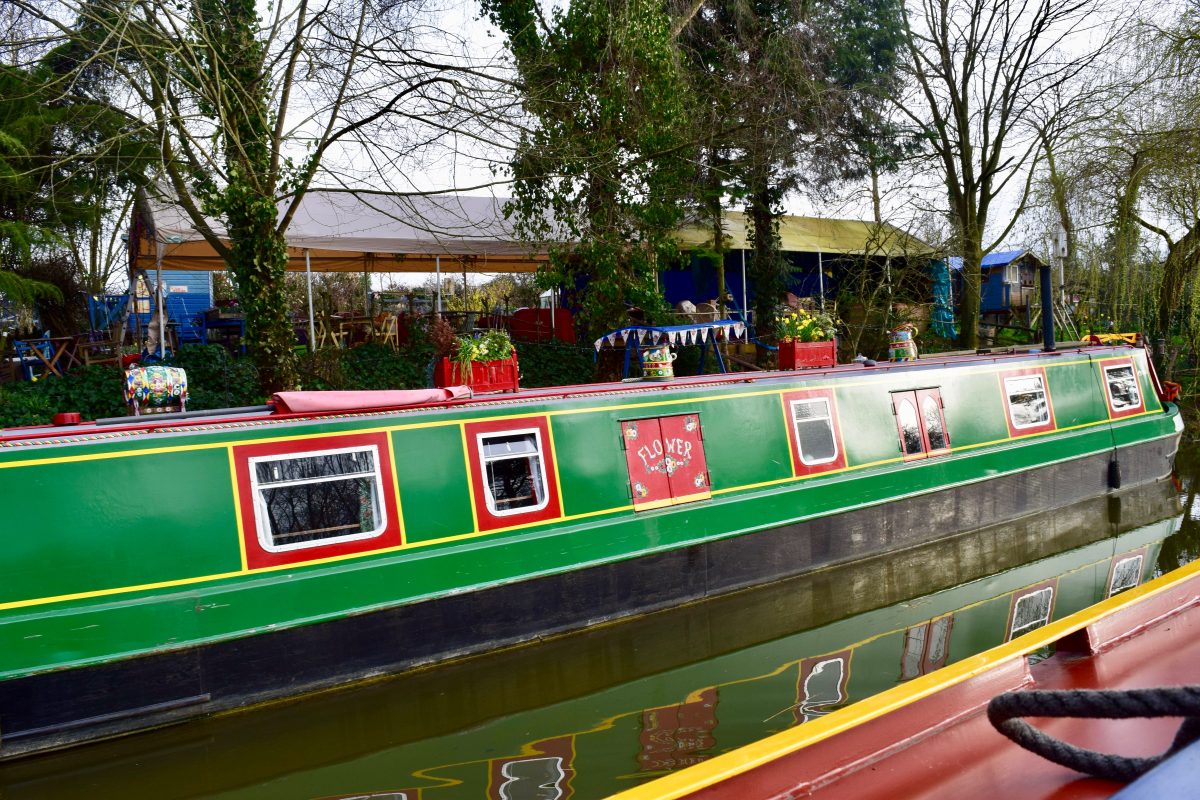
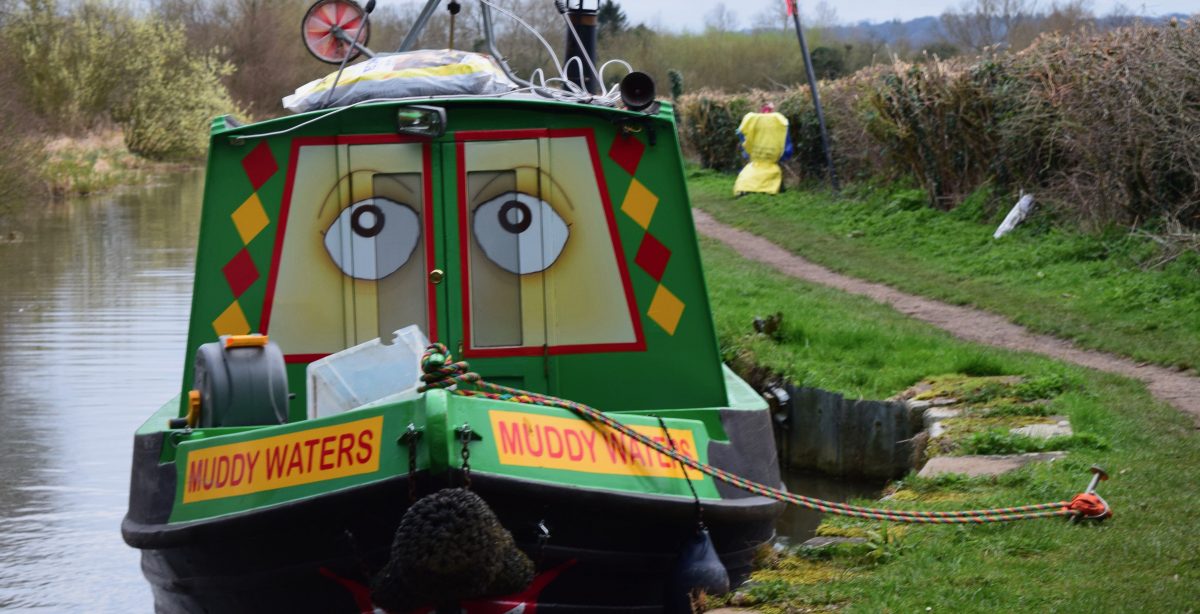
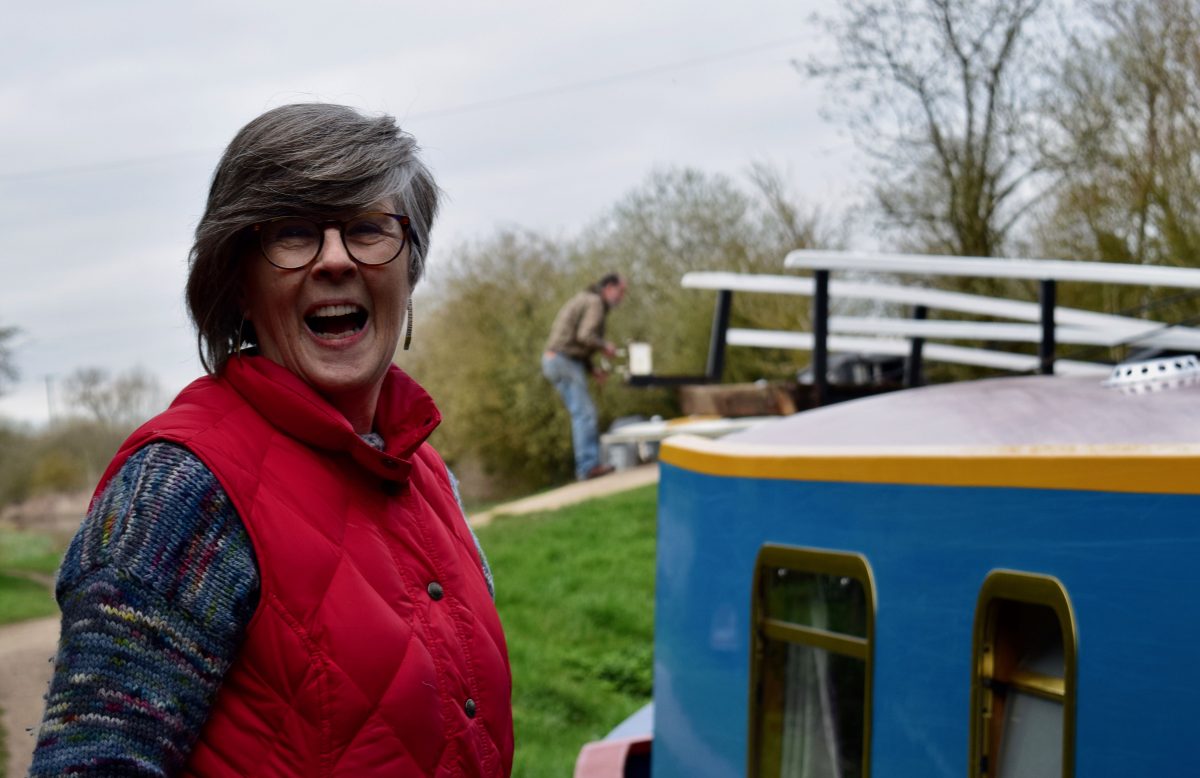
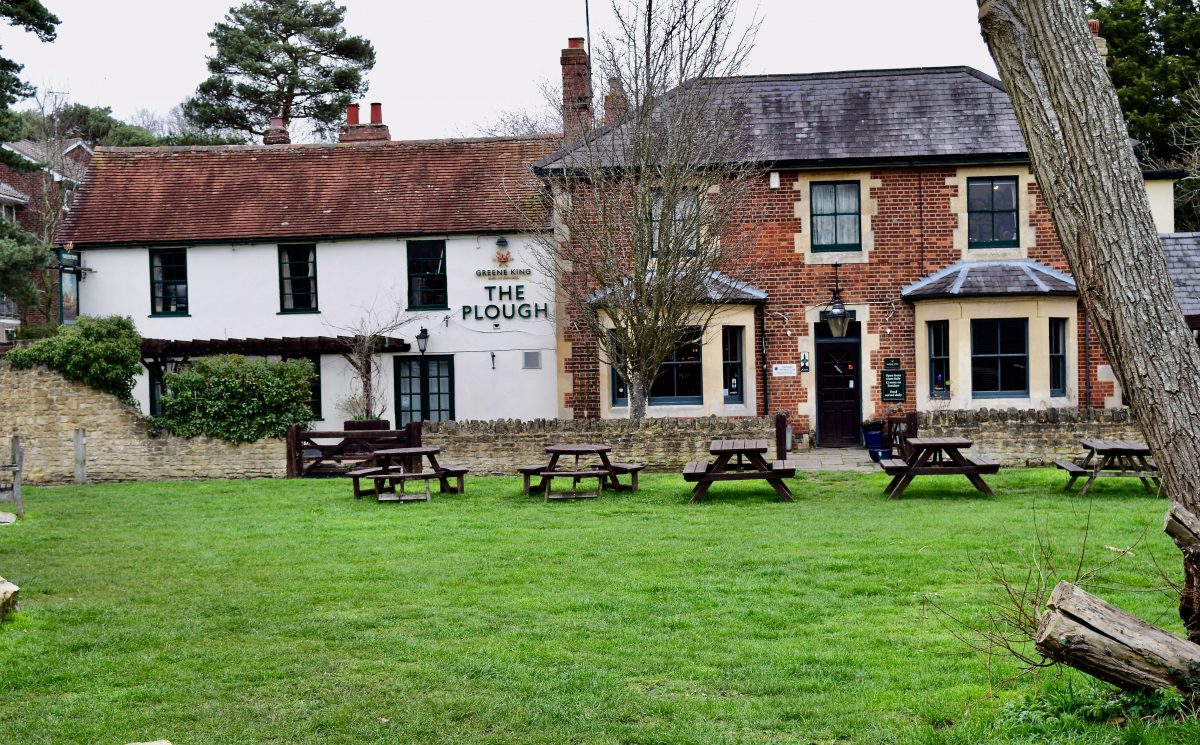
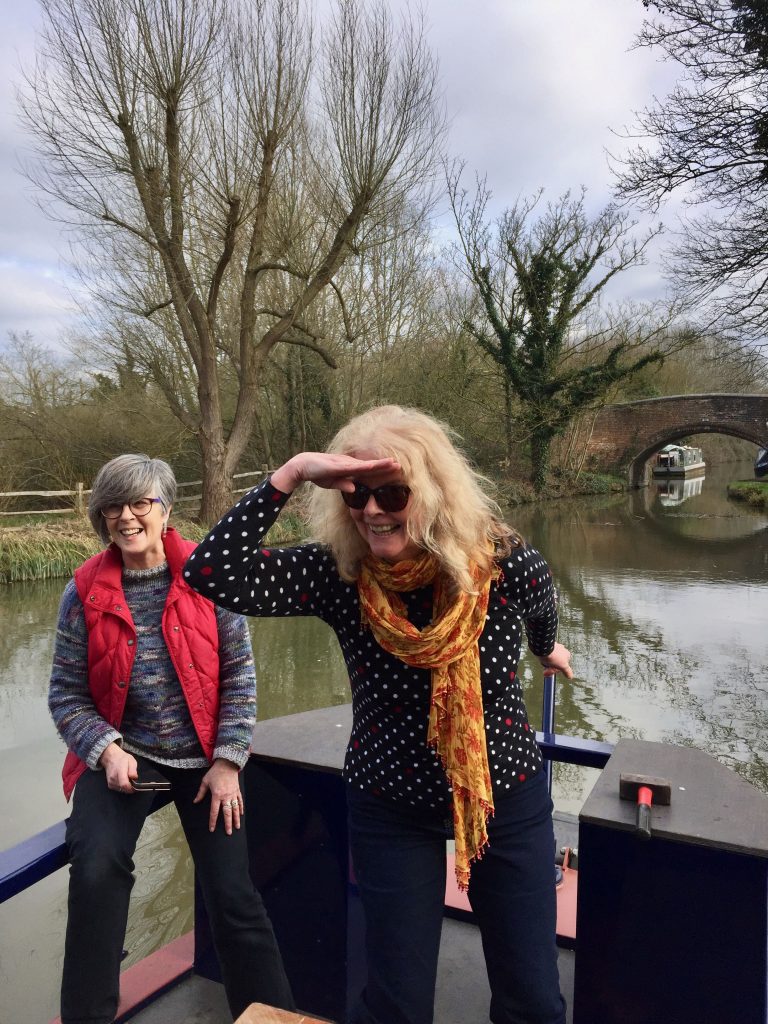
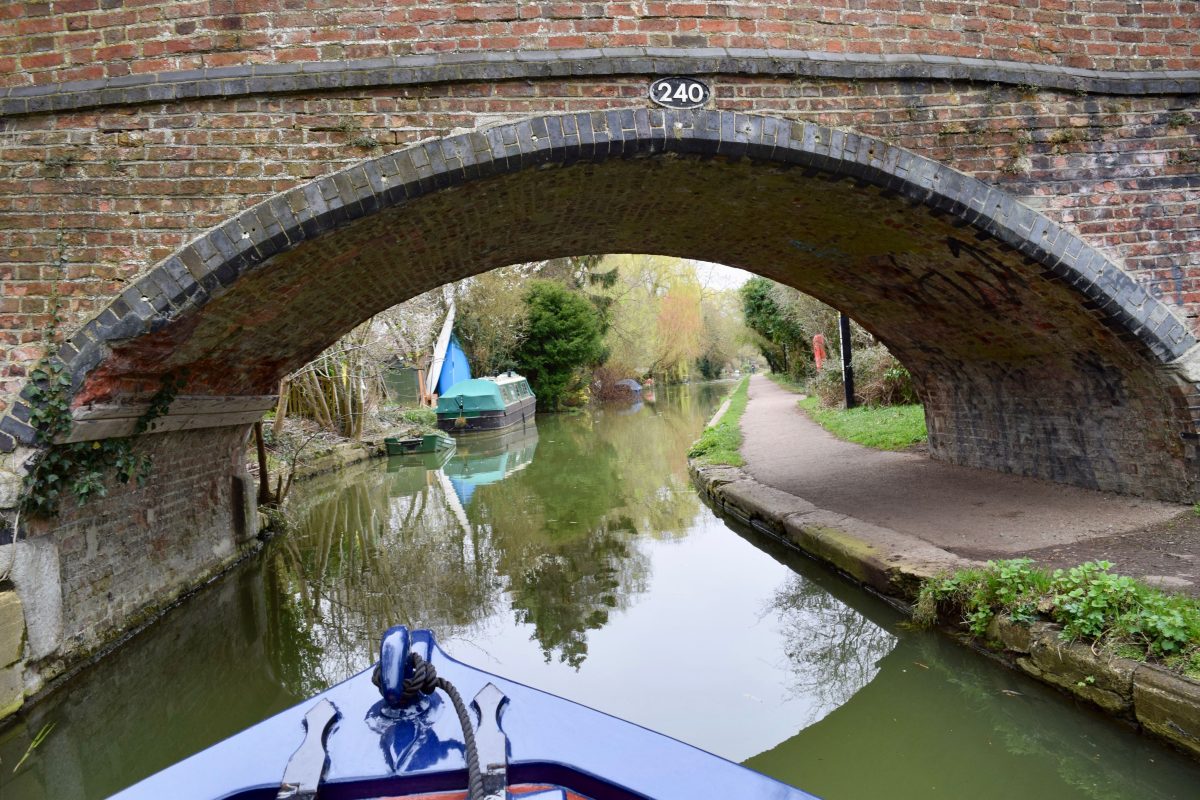
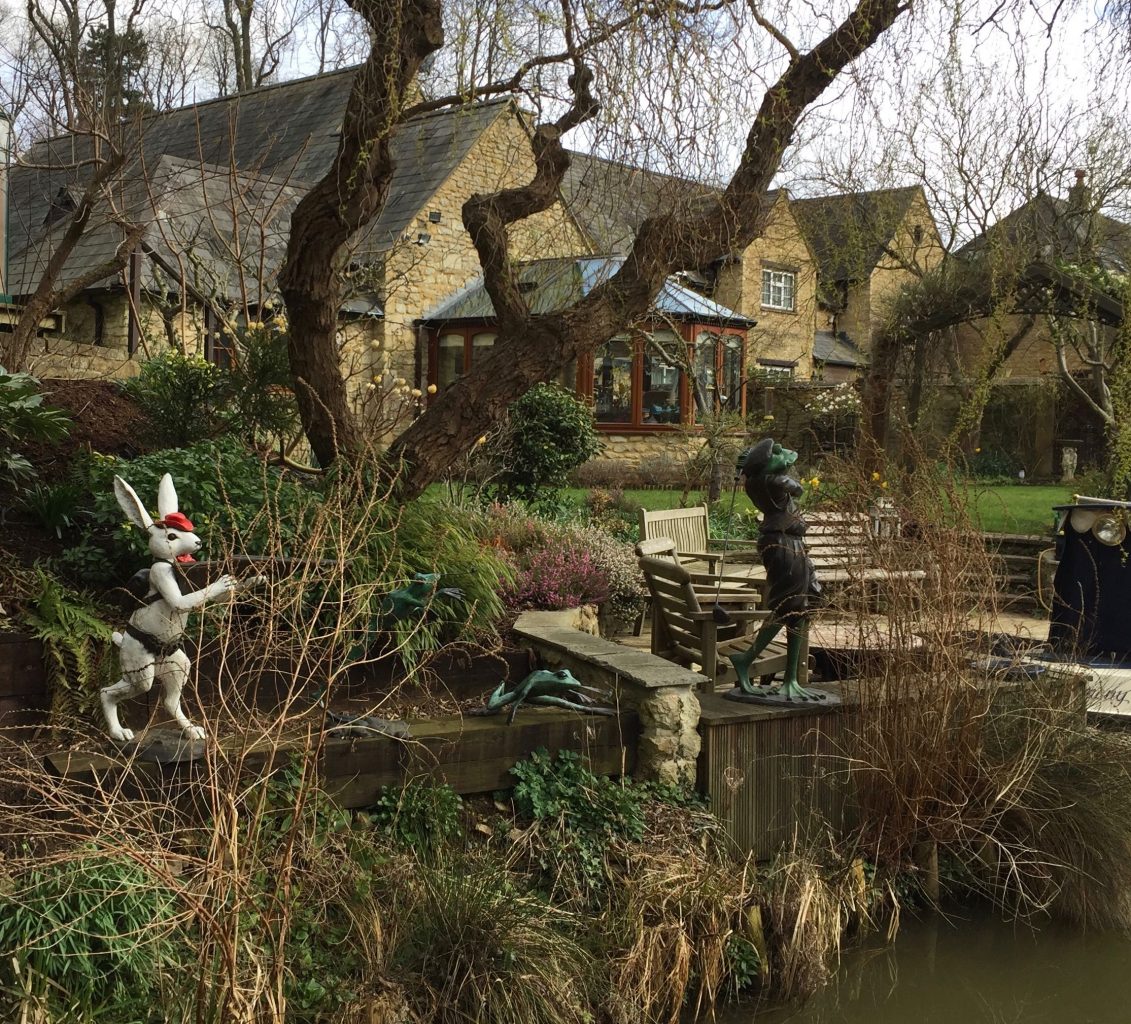
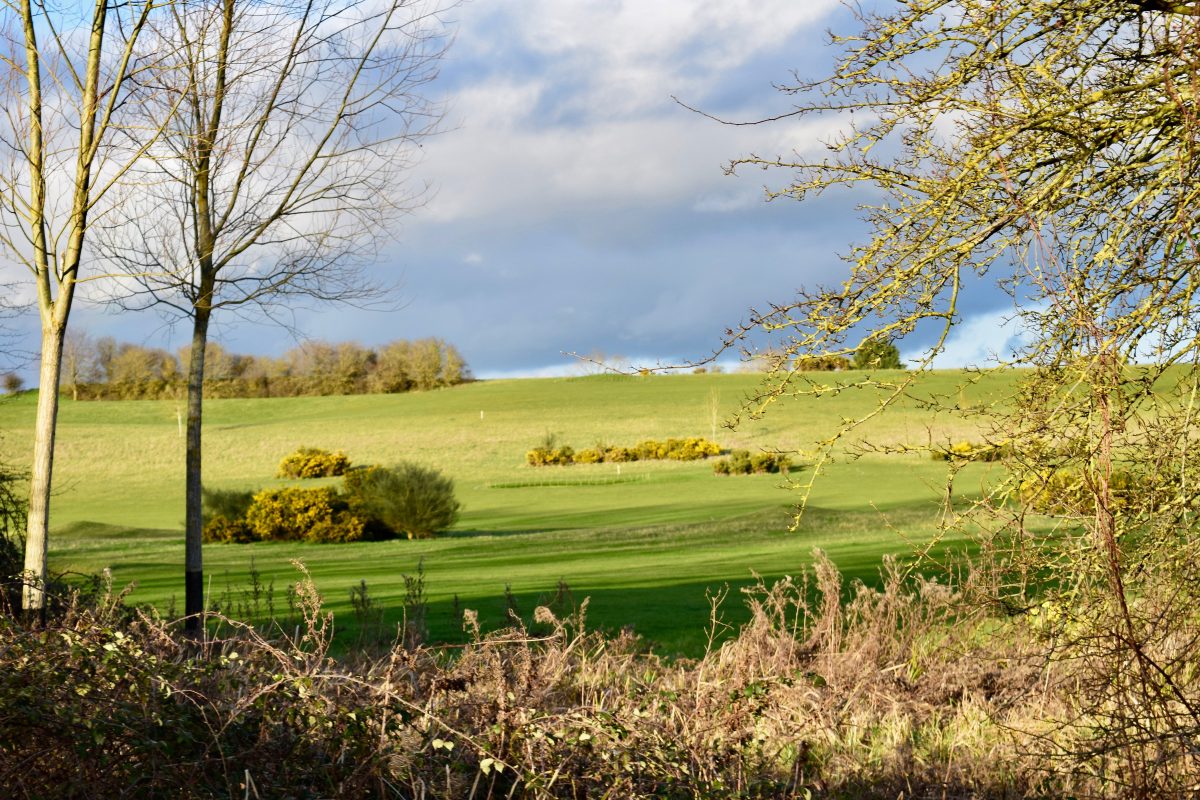
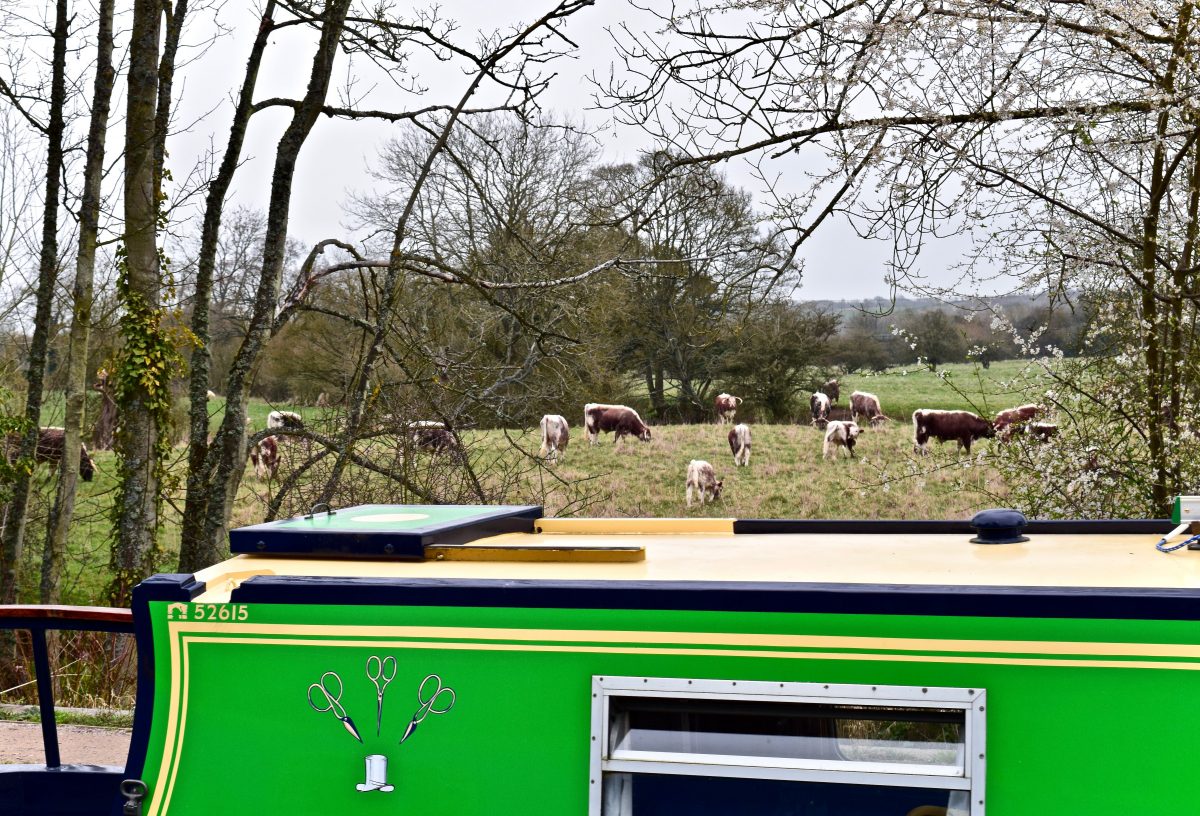
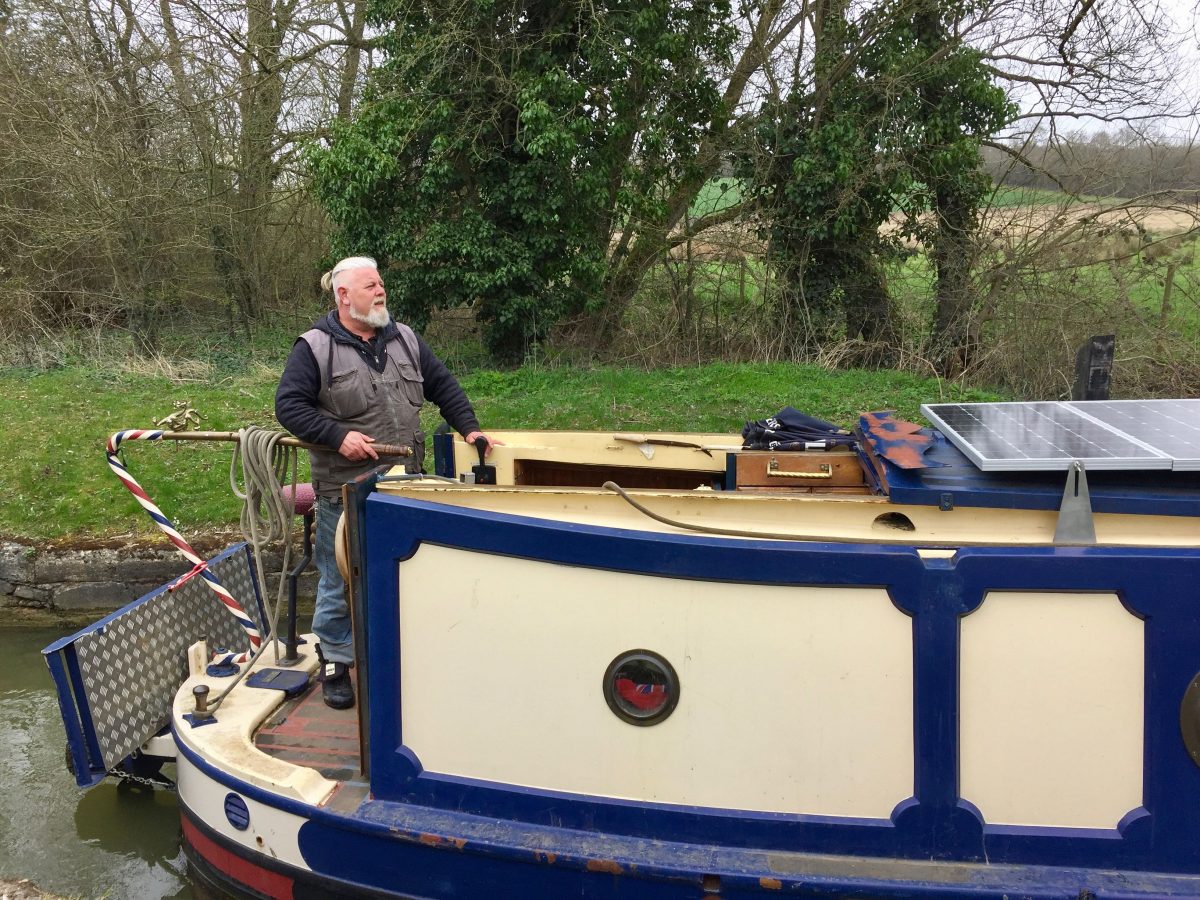
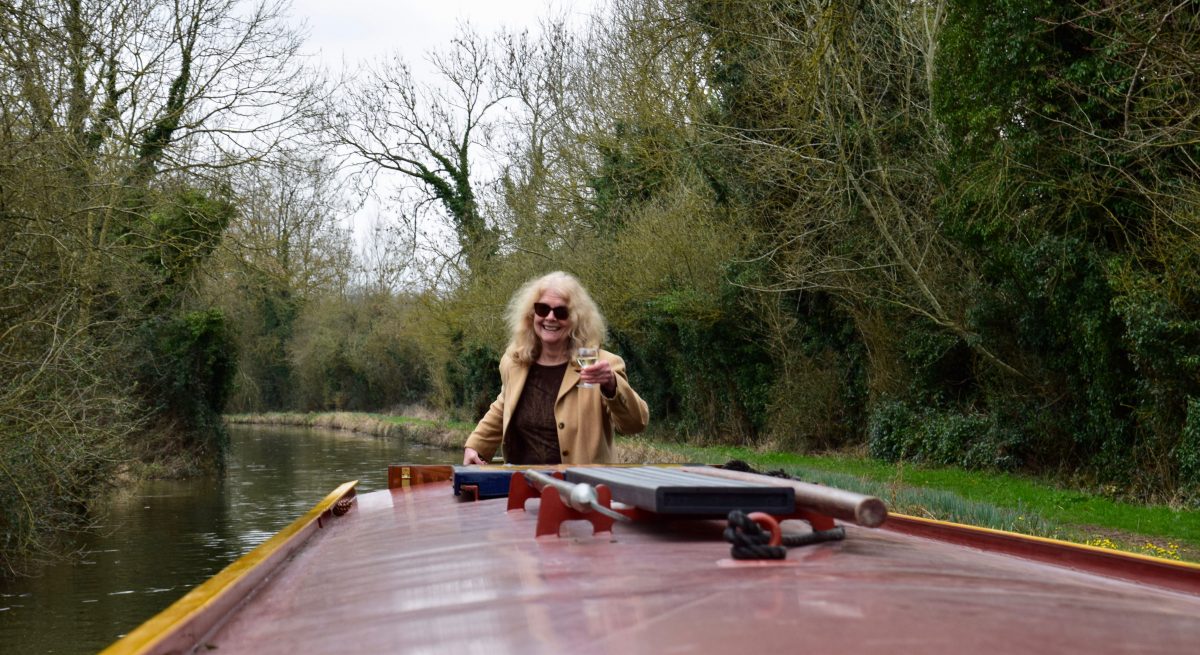
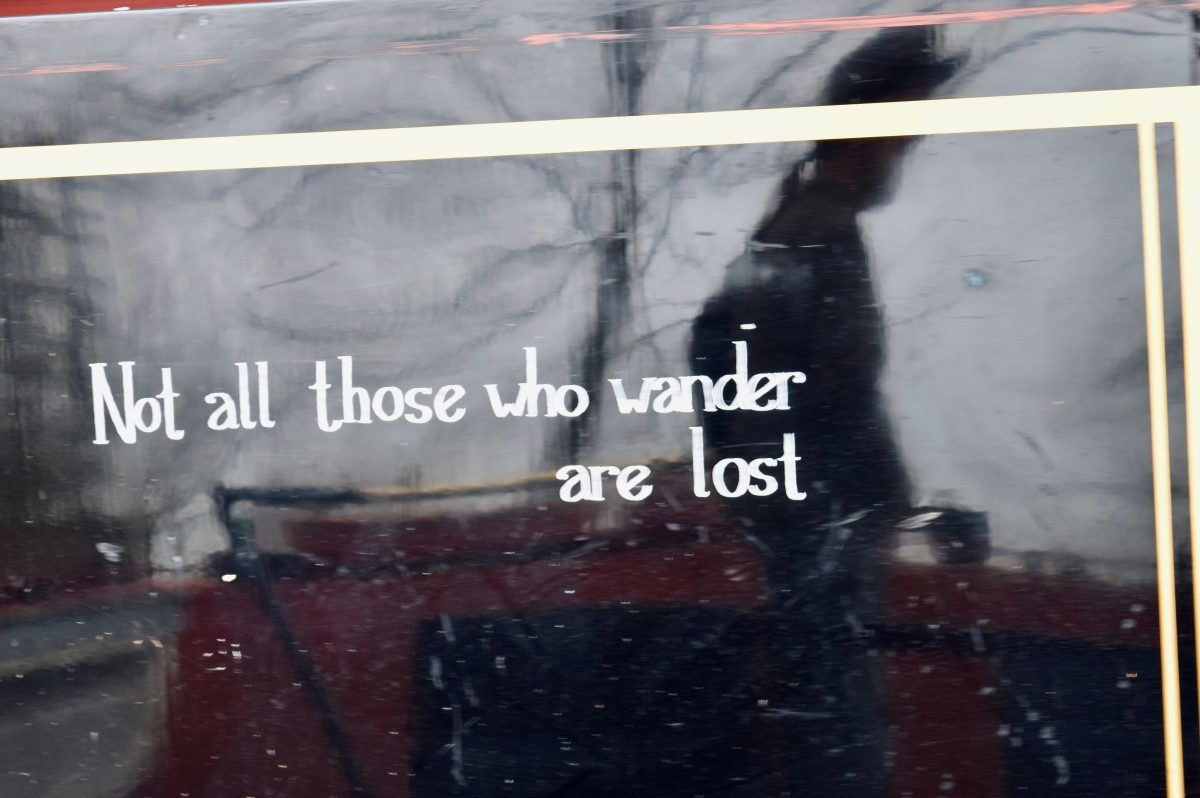
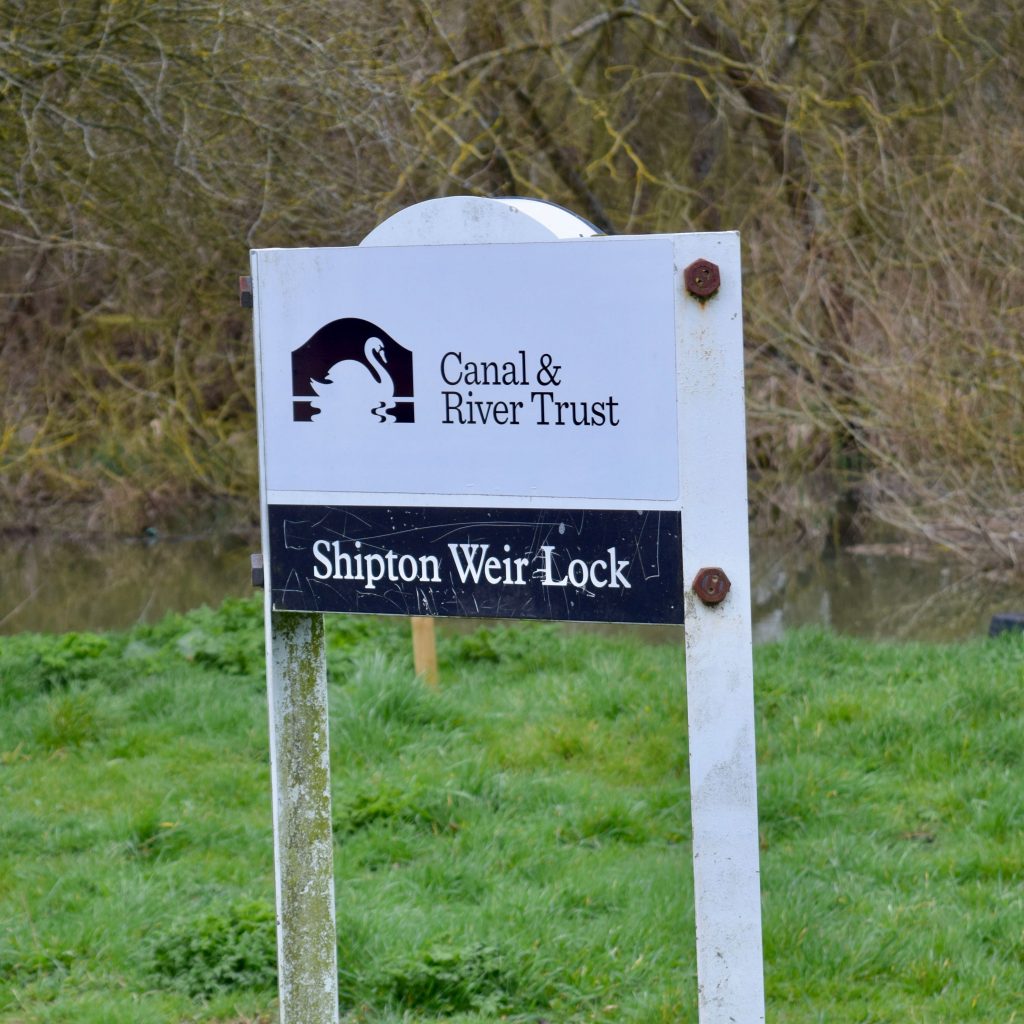
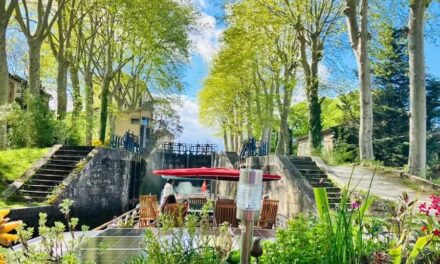
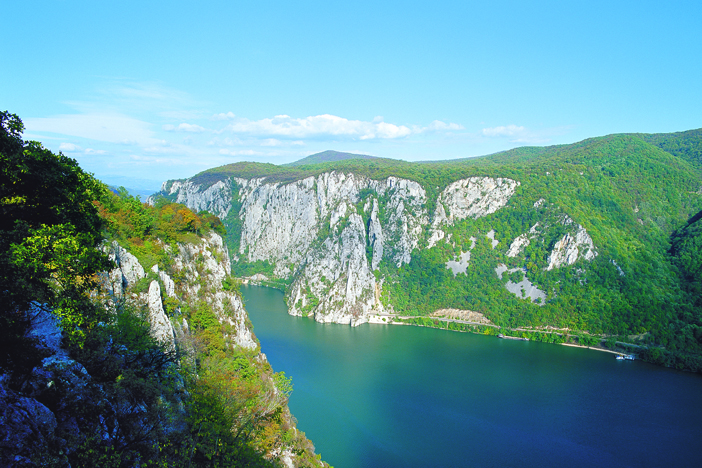

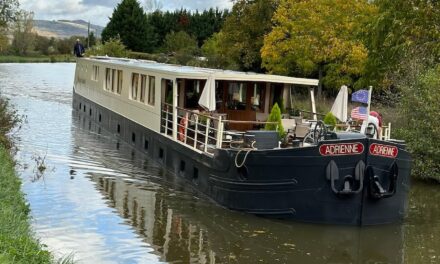

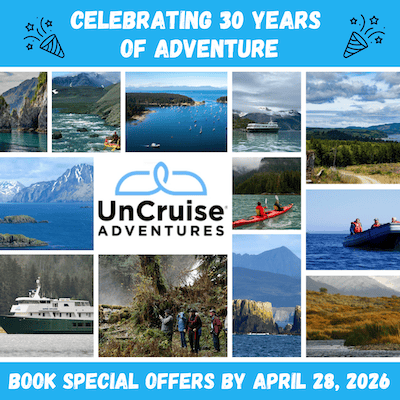
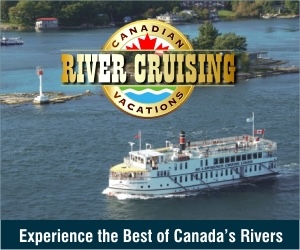






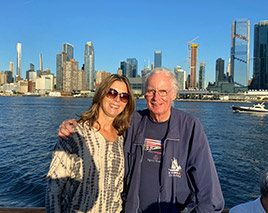 HEIDI SARNA
HEIDI SARNA




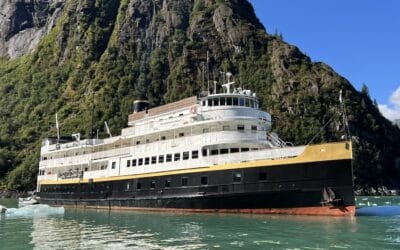
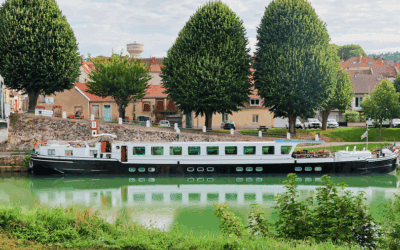



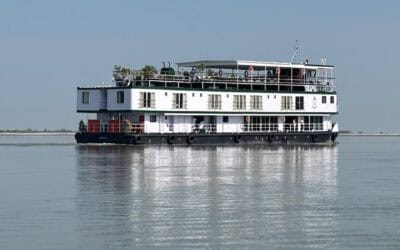
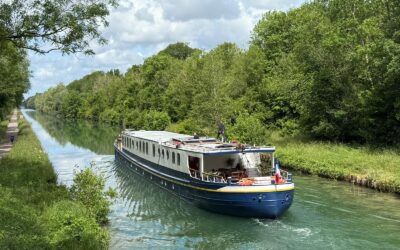

Turning the boat around was not aided by abuse shouted at us by some American woman !
Lovely account of your trip.
Xxxx
Looks like a lovely adventure! I want to go on one too!
Narrowboating is very cool indeed! 🙂
Great photos and narrative…..very enjoyable account.
Thank you, we loved Robin’s story and photos too!!
4 knots is greater than the max speed allowed of4 mph. I am surprised you didn’t incur the wrath of the “slow down” trolls that moan continuously at anything over tick over.
Hi Maffi, You are right! 4 miles per hour is slower than 4 knots per hour. But the speed of narrowboats is calculated in knots, and some people talk about knots and miles interchangeably I noticed. So that’s probably where the confusion came in. But 4 knots are actually 4.6 miles per hour. Yikks! We could have been speeding. But there was a notch in our brilliant little boat that caught the throttle as you pushed it forward. So that’s where it landed and most of the time stayed. When we were putting along a wide empty stretch on the upper part of the Oxfordshire canal, I did push it forward just a little. But never where boats were moored, or when the wake would hit too hard along the embankment.